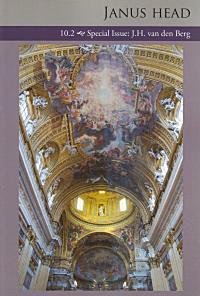 Janus Head Janus Head
10.2
Special Issue
J.H. van den Berg

Beyond Time
New & Selected Work
1977 - 2007
Robert Gibbons
 The Age of Briggs & Stratton The Age of Briggs & Stratton
Peter Culley
|

Barbara Kruger: Pre-Digital, 1980–1992
Skarstedt Gallery
via
Remote Control: Power, Cultures, and the World of Appearances
Barbara Kruger
google books
Beyond Recognition: Representation, Power, and Culture
Craig Owens, Scott Stewart Bryson, Simon Watney, Barbara Kruger
google books
_______________________
Mind fiction: Why your brain tells tall tales
Helen Phillips
Many older people gradually develop amnesia about recent happenings while retaining a wealth of detail from their younger days. They may make up stories to cover their embarrassment about the blanks, and generally they know their memory is foggy. The kind of storytelling my grandmother did after a series of strokes is a little different. Neurologists call it confabulation. It isn't fibbing, as there is no intent to deceive and people seem to believe what they are saying. Until fairly recently it was seen simply as a neurological deficiency - a sign of something gone wrong. Now, however, it has become apparent that healthy people confabulate too.(....)
In fact, we may all confabulate routinely as we try to rationalise decisions or justify opinions. Why do you love me? Why did you buy that outfit? Why did you choose that career? At the extreme, some experts argue that we can never be sure about what is actually real and so must confabulate all the time to try to make sense of the world around us....(more)
The Situationist
_______________________
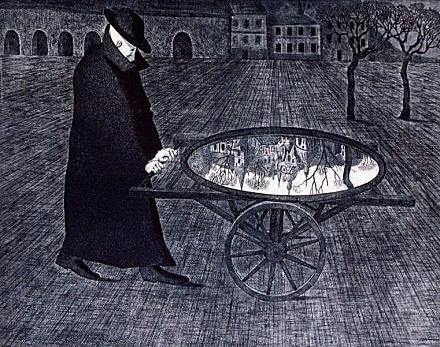
The Window
Jindrich Pilecek
1944 - 2002
_______________________
Secret Agency in Mainstream Postmodern Cinema
Neal King
postmodern culture
In this loose network of artists we find the most immediate and concrete agency behind mind-job cinema--a group of filmmakers invested in tricky but clear storytelling, about heroes whose agency is hampered by the filmmaking beneficiaries of modernist celebration of authorship. Using the classical Hollywood model, filmmakers can boost their own status as auteurs by puncturing the delusions of the heroes whose stories they tell. Just as agency manifests in mind-job films as agonistic violence, often against loved ones, so does authorship appear as the showy mutilation of the traditional hero's subjectivity. These filmmakers play one agency off against another and show they are really in charge.
Mind-job cinema may very well result from larger postmodern change; I note merely that we need not resort to theories of the collapse of Western narrative, the death of authorship, a fragmentation of mundane storytelling, or collective schizophrenia in order to explain the appearance of these stories. We have sufficient reason in the mundane workings of artistic networks in English-language, feature-film production. The root of mind-job cinema thus may or may not be postmodern production. But, either way and following Begley, I urge against having it all ways in our analyses. I do not see how mind-job movies can be both post-classically ambiguous and metaphorically clear, or be apolitical and bear insight into postmodern conditions. Indeed, the imputation of meaning to the mind-job movies, by their scholarly critics, by their fans, and by the filmmakers themselves (however career-serving those imputations might be), lend credence to the notion that storytelling by the international, Hollywood-dominated film industry is more classical and more modernist than not. For all of the schizophrenia and conspiratorial brainwashing depicted onscreen, these stories tell, in reasonably clear fashion, stories of people with postmodern problems. They slight neither clear progress nor character development for vapid nostalgia, violent spectacle, or brainwashed hallucination. Nor does such storytelling appear to respond to uniquely postmodern demand. Though a generation will have grown up on video screenings of Fight Club and The Matrix, mind-job films are not otherwise hits. These visions of compromised agency and restless violence seem unlikely to indicate mass sentiments or to shape their courses. The small size of audiences for most of these films suggests that we look elsewhere to explain patterns in the storytelling. Likewise, though Cronenberg tells stories that never specify diegetic reality, he is alone in that respect among makers of mind-job cinema, and does not indicate a larger trend. Postmodernism in Hollywood's storytelling may be sharply constrained by its commercial impulses. ...(more)
_______________________
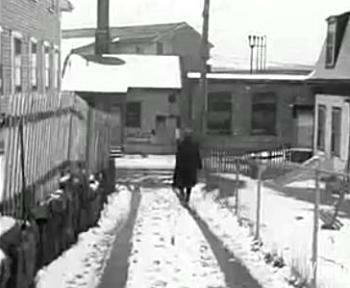
Polis is This:
Charles Olson & the Persistence of Place
_______________________
In Bluebeard's Castle. Somes Notes Towards the Redefinition of Culture
George Steiner
A Season in Hell
We cannot think clearly about the crises of Western culture, about the origins and forms of totalitarian movements in the European heartland and the recurrence of world war, without bearing sharply in mind that Europe, after 1918, was damaged in its centers of life. Decisive reserves of intelligence, of nervous resilience, of political talent, had been annihilated. The satiric conceit, in Brecht and Georges Grosz, of children murdered because never to be born has its specific genetic meaning. An aggregate of mental and physical potentiality, of new hybrids and variants, too manifold for us to measure, was lost to the preservation and further evolution of Western man and of his institutions. Already in a biological sense we are looking now at a diminished or "post-culture."(...)
Two centuries after Voltaire, and at a time when these doctrines had all but vanished into picturesque formality? This is the point. Much has been said of man's bewilderment and solitude after the disappearance of Heaven from active belief. We know of the neutral emptiness of the skies and of the terrors it has brought. But it may be that the loss of Hell is the more severe dislocation. It may be that the mutation of Hell into metaphor left a formidable gap in the coordinates of location, of psychological recognition in the Western mind. The absence of the familiar damned opened a vortex which the modern totalitarian state filled. To have neither Heaven nor Hell is to be intolerably deprived and alone in a world gone flat. Of the two, Hell proved the easier to re-create. (The pictures had always been more detailed.)
In our current barbarism an extinct theology is at work, a body of transcendent reference whose slow, incomplete death has produced surrogate, parodistic forms. The epilogue to belief, the passage of religious belief into hollow convention, seems to be a more dangerous process than the philosophes anticipated. The structures of decay are toxic. Needing Hell, we have learned how to build and run it on earth. A few miles from Goethe's Weimar or on the isles of Greece. No skill holds greater menace. Because we have it and are using it on ourselves, we are now in a postculture. In locating Hell above ground, we have passed out of the major order and symmetries of Western civilization....(more)
_______________________
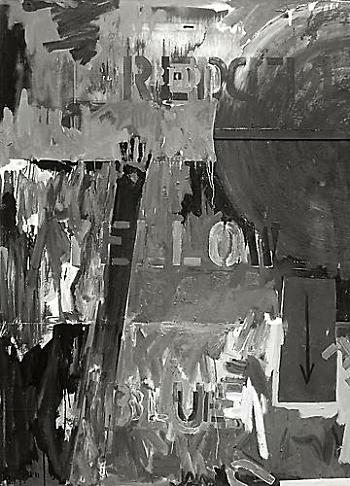
Land's End
Jasper Johns - Black and White
Photographs Of Paintings 1955-1969
By Rudy Burckhardt And Others
_______________________
First Monday
Volume 14, Number 4 - 6 April 2009
Salvation or destruction: Metaphors of the Internet
Rebecca Johnston
Beyond Google and evil:
How policy makers, journalists and consumers should talk differently about Google and privacy
Chris Jay Hoofnagle
Signs of epistemic disruption:
Transformations in the knowledge system of the academic journal
William W. Cope, Mary Kalantzis
_______________________
Nordic Network for the history and Aesthetics of Photography
_______________________
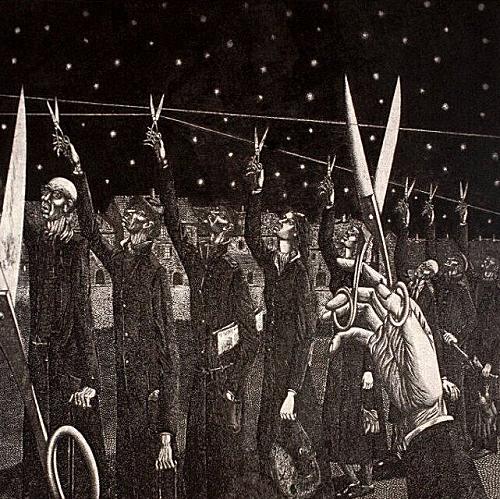
Jindrich Pilecek
_______________________
"What are the stars but points in the body of God where we insert the healing needles of our terror and longing?"
-
Thomas Pynchon, Gravity's Rainbow
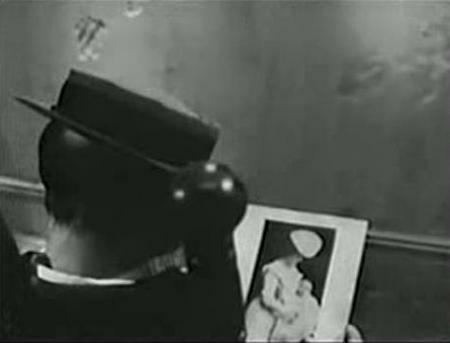
Film - By Samuel Beckett
1 2 3
youtube
que ferais-je sans ce monde (what would I do without this world)
Samuel Beckett
what would I do without this world faceless incurious
where to be lasts but an instant where every instant
spills in the void the ignorance of having been
without this wave where in the end
body and shadow together are engulfed
what would I do without this silence where the murmurs die
the pantings the frenzies towards succour towards love
without this sky that soars
above its ballast dust
what would I do what I did yesterday and the day before
peering out of my deadlight looking for another
wandering like me eddying far from all the living
in a convulsive space
among the voices voiceless
that throng my hiddenness
Translated by Beckett
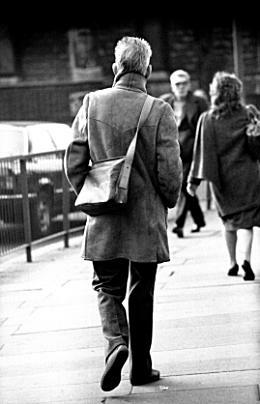
Samuel Beckett
(13 April 1906 – 22 December 1989)
_______________________
How It Was - A memoir of Samuel Beckett
Anne Atik
pdf here
Fathoms from Anywhere
A Samuel Beckett Centenary Exhibition
"I don't find solitude agonizing, on the contrary. Holes in paper open and take me fathoms from anywhere."
- Samuel Beckett
The last sentence of The UnnamableSamuel Beckett
parsed and punctuated by Colin Greenlaw
And so on, the old rigmarole. It can't be I. Or it's because I pay no heed: it's such an old habit, I do it without heeding. Or as if I were somewhere else.
There I am far again, there I am absentee again: it's his turn now, he who neither speaks nor listens, who has neither body nor soul. It's something else he has: he must have something, he must be somewhere. He is made of silence (there's a pretty analysis), he's in the silence. He's the one to be sought, the one to be, the one to be spoken of, the one to speak. But he can't speak: then I could stop, I'd be he, I'd be the silence, I'd be back in the silence, we'd be reunited, his story the story to be told.
But he has no story, he hasn't been in story? It's not certain: he's in his own story, unimaginable, unspeakable. That doesn't matter: the attempt must be made, in the old stories incomprehensibly mine, to find his. It must be there somewhere. It must have been mine, before being his. I'll recognize it, in the end I'll recognize it: the story of the silence that he never left, that I should never have left, that I may never find again, that I may find again. Then it will be he, it will be I, it will be the place: the silence, the end, the beginning, the beginning again - how can I say it? That's all words, they're all I have - and not many of them: the words fail, the voice fails. So be it. I know that well. It will be the silence, full of murmurs, distant cries. The usual silence, spent listening, spent waiting, waiting for the voice....(more)
_______________________

Peculiar Insects
1888
James Ensor
(April 13, 1860 – November 19, 1949)
_______________________
The Photographic Device as a Waiting Machine
Mauricio Lissovsky
Most probably since 1927, and certainly from 1930 onwards, Benjamin uses photography as a theoretical model or, more precisely, as the phenomenical experience that supports his conception of the historical event. Yet what it is that permits photography to play this role remains obscure, even in Benjamin. What makes it possible for the philosopher to recommend the photographer-historian to seek “the inconspicuous spot where in the immediacy of that long-forgotten moment the future nests so eloquently that we, looking back, may rediscover it”?
The question I want to address here comes directly from Benjamin`s assertion: when and how does photography become a device in which the future might be nested? I believe the answer lies in the coming of modern photography, something that Benjamin’s generation witnessed, and whose difference, in relationship to classic photography, Bergson did not notice. To answer this question, we need to look at the photographic act no longer as presupposing docility – light rays smoothly printing reflections on a sensitive surface -, but as resistance; no longer as concerned with velocity, but instead delaying such velocity. I understand these dislocations to be crucial if we are to consider photography not merely as yet another technical device for producing images, but as an experience, in the deeper sense of this term....(more)
Image and Narrative 23. Time and Photography
_______________________
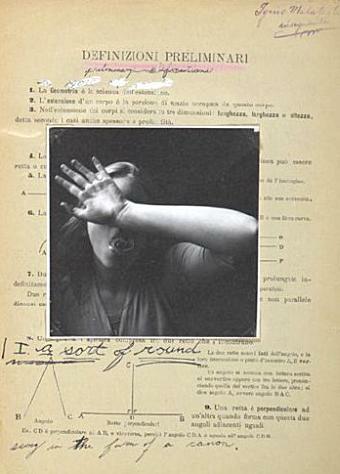
details from some disordered interior Geometries
Francesca Woodman
(1958-1981) 1 2 3 4
Dialogues with Diagrams: [pdf]
Francesca Woodman's Book, some disordered interior Geometries
Alison Dunhill Abstract
This article presents a close visual reading of Francesca Woodman’s photographic book some disordered interior Geometries. The work comprises a complex system of interventions to an antique (c.1900) source text, an advanced geometry manual for Italian students entitled Esercizi Graduati di Geometria. The article focuses on selected pages from the book, demonstrating the ways in which Woodman confronts issues of memory and identity through the tight narrative framework of her studio interior, herself and personal and family objects. On an aesthetic level the superimposed images work to construct a series of responses to the geometric forms illustrated and described in the source work. Woodman re-creates or references them through the imaging of her own body, as well as by using the spaces between furniture and wall and floor divisions in the enclosed space. Her response is to the givens of printed diagram, printed text and printed formulae. In her interventions she adds a specially made or chosen photographic image, often annotating it in her own handwriting or making a written aside to the page’s instructions, as well as sometimes re-drawing a diagrammatic form for emphasis or delight. ...
The value in sdiG is in the meaning and rhythm of Woodman’s dialogue with the original: poetic and humorous, analytical and reflexive. The diagrams and symbols used in the first context to illustrate theories of geometry evolve their givens through Woodman’s intervention into a second context as primary visuals. These are hard-edged diagrams moulded by logic to necessarily lack human presence and essence: they are the static codifying of an ancient system of understanding, monographic symbols in use by engineering students probably in Rome, almost a century earlier. Woodman’s last quarter of the twentieth century project complexly intervenes in the base template they provide. Her books are containers of found text, diagram, explanation and proof, a compression of their era into a piece of ephemera. In common with all found objects, they are dispossessed, separated from a first owner and from a first function by time, death and a resurrection of purpose.
re•bus
a journal of art history & theory
.....................................................
Surrealism and Self-representation in the Photography of Francesca Woodman
Eva Rus _______________________
Digging
Seamus Heaney
born 13 April 1939
Between my finger and my thumb
The squat pen rests; as snug as a gun.
Under my window a clean rasping sound
When the spade sinks into gravelly ground:
My father, digging. I look down
Till his straining rump among the flowerbeds
Bends low, comes up twenty years away
Stooping in rhythm through potato drills
Where he was digging.
The coarse boot nestled on the lug, the shaft
Against the inside knee was levered firmly.
He rooted out tall tops, buried the bright edge deep
To scatter new potatoes that we picked
Loving their cool hardness in our hands.
By God, the old man could handle a spade,
Just like his old man.
My grandfather could cut more turf in a day
Than any other man on Toner's bog.
Once I carried him milk in a bottle
Corked sloppily with paper. He straightened up
To drink it, then fell to right away
Nicking and slicing neatly, heaving sods
Over his shoulder, digging down and down
For the good turf. Digging.
The cold smell of potato mold, the squelch and slap
Of soggy peat, the curt cuts of an edge
Through living roots awaken in my head.
But I've no spade to follow men like them.
Between my finger and my thumb
The squat pen rests.
I'll dig with it.
_______________________
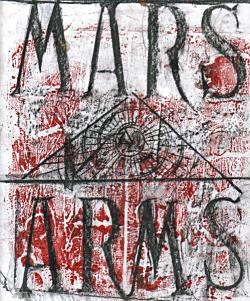
David-Baptiste Chirot
_______________________
Text, Textile, Exile: Meditations on Poetics, Metaphor, Net-work
Maria Damon
electronic book review
(....)Another visual poet, David-Baptiste Chirot, who leads a tenuous existence in Milwaukee Wisconsin, avails himself of street debris and found materials to echo Cobbing's intent and aesthetic in a serial homage to the British poet; one of this series covers paper with a distressed patina of letters and numbers (dripping? melting? burning? half-rubbed-out, like marginal human beings?) that, toward the lower left, include the word FOUND, the words "replicated" and "badly" hovering near each other, and the phrase "damaged by fire" a photograph of a man (not Bob Cobbing) in winter clothing, hands in pockets, looking downward as if drawn into himself against the social and thermal elements, handsome in a bohemian/ruffian/artist way; as well as rubbings and dramatic creasings in the paper contribute a "background" of semi-decipherable text and markings. Chirot, who often uses rubbing and collage techniques to establish communion with the "RubBeings" he discerns in inanimate objects such as telephone poles and manhole covers, also brings together a thickly textured materiality that is both textual and trans-textual, textured and textilic in its evocations. Such a trans-continental call-and-response is itself a weaving, knitting, lacing, or - pick your gendered handwork metaphor! - that disseminates new artforms and net-works artists on the edge.
II. TEXTILE:
Just as, in the examples I've offered here, Man Ray, Bob Cobbing and David-Baptiste Chirot blur the boundaries between visual and literary art, and also between participation in the world of poetry making and commentary on it, my recent literary practice incorporates textile poems as meta-commentary on poetry and poetics, but through a gift-economy that circulates through my network of poetry friends and colleagues, in a reverse trajectory from Man Ray's in two different senses and through two different textile practices: in cross-stitched visual poems, I create semantically meaningful words in cloth, while simultaneously defamiliarizing them by heightening the formal aspects of the letters themselves; and in weaving, I create long, rectangular shapes (shawls, basically, but we can think of them as giant scrolls) that establish and at the same time try to estrange the familiarity of traditional patterns, in this case Appalachian, thus creating and at the same time distorting narrative and communication, blurring not only the boundaries between visual and literary art, between participation and commentary, but also between "signal" and "noise." In the music world as in the textual world, textile metaphors abound: Keith Richards has referred to his work with the other Rolling Stones guitarists as practicing "the ancient art of weaving," marking the Stones as essentially a British band, and essentially domestic, rooted in the artisanal household, despite their desired association with African American culture through their early choice of covers, their investment in the blues as inspiration, and their name, which include rootlessness, transience, constant diasporic mobility, and anonymity (and Richards, despite his clearly sincere admiration for the blues and related forms of music, has been firm in wanting to preserve the Stones as a British band). Although weaving and cross-stitching are different forms of textile production - one creates cloth from yarn or thread, the other embellishes existing cloth through iterative piercing and stabbing, a form of ornamentation which is also violation - both rely on a grid, on a binarized, Cartesian graph form that underlies much Western thinking. So while one can make some appeal to the status of textile work as traditionally women's work, subordinated to and thus somehow resistant to the master narrative of high art and philosophy, there's more to the story; the small terrain of women's handwork in some instances echoes the plotting of gardens, the territory of conquest, the plaid of sectarian "colors" and nationalist flags. ...(more)
The Dark End of the Street:
Margins in American Vanguard Poetry
Maria Damon
google books
_______________________

turnaround
Benedikt Partenheimer via Heading East
_______________________
fizzle 3
Afar a bird
Ruinstrewn land, he has trodden it all
night long, I gave up, hugging the hedges,
between road and ditch, on the scant grass,
little slow steps, no sound, stopping ever and
again, every ten steps say, little wary steps, to
catch his breath, then listen, ruinstrewn land, I
gave up before birth, it is not possible other-
wise, but birth there had to be, it was he, I was
inside, now he stops again, for the hundredth
time that night say, that gives the distance
one, it's the last, hunched over his stick, I'm
inside, it was he who wailed, he who saw the
light, I didn't wail, I didn't see the light, one on
top of the other the hands weigh on the stick,
the head weighs on the hands, he has caught
his breath, he can listen now, the trunk
horizontal, the legs asprawl, sagging at the
knees, same old coat, the stiffened tails stick
up behind, day dawns, he has only to raise his
eyes, open his eyes, raise his eyes, he merges
in the hedge, afar a bird, a moment past he
grasps and is fled, it was he had a life, I didn't
have a life, a life not worth having, because of
me, it's impossible I should have a mind and I
have one, someone divines me, divines us,
that's what he's come to, come to in the end, I
see him in my mind, there divining us, hands
and head a little heap, the hours pass, he is
still, he seeks a voice for me, it's impossible I
should have a voice and I have none, he'll find
one for me, ill beseeming me, it will meet the
need, his need, but no more of him, that
image, the little heap of hands and head, the
trunk horizontal, the jutting elbows, the eyes
closed and the face rigid listening, the eyes
hidden and the whole face hidden, that image
and no more, never changing, ruinstrewn land,
night recedes, he is fled, I'm inside, he'll do
himself to death, because of me, I'll live it with
him, I'll live his death, the end of his life and
then his death, step by step, in the present,
how he'll go about it, it's impossible I should
know, I'll know, step by step, it's he will die, I
won't die, there will be nothing of him left but
bones, I'll be inside, nothing but a little grit, I'll
be inside, it is not possible otherwise,
ruinstrewn land, he is fled through the hedge,
no more stopping now, he will never say I,
because of me, he won't speak to anyone, no
one will speak to him, he won't speak to
himself, there is nothing left in his head, I'll
feed it all it needs, all it needs to end, to say I
no more, to open its mouth no more, confu-
sion of memory and lament, of loved ones and
impossible youth, clutching the stick in the
middle he stumbles bowed over the fields, a
life of my own I tried, in vain, never any but
his, worth nothing, because of me, he said it
wasn't one, it was, still is, the same, I'm still
inside, the same, I'll put faces in his head,
names, places, churn them all up together, all
he needs to end, phantoms to flee, last phan-
toms to flee and to pursue, he'll confuse his
mother with whores, his father with a road-
man named Balfe, I'll feed him an old curdog,
a mangy old curdog, that he may love again, lose again,
ruinstrewn land, little panic steps
-- Samuel Beckett, translated by the author
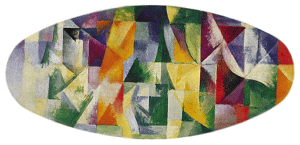
Robert Delaunay
_______________________
Tour de Muse
Donald Illich
scroll down
The movement of new cyclists down my street
is a call for celebration in forests.
Woodsmen hack spokes out, refuse to chop
toothpicks from oaks they knew before the war.
Bicycles hang from angry branches, pedaling
the air against needles and pinecones.
I help riders up, but they're on the lookout.
Lumberjacks are seeking fresh maple syrup,
who knows what they might use for flapjacks?
They stumble down a gold brick path, thinking
it's chocolate, but the Easter Bunny's
amigos rise from their molten holes.
The rabbits wield unlucky arms, possess
black collars with racers' names on them.
(....)
The newspaper writes about my address—
"don't expect anything cool to happen."
No one says Paul Bunyan and his ox will run
over competitors just as they've escaped
the critics' fangs and the noun eating plants.
Its writers can't tell me who'll be gored,
handlebars bleeding words from stomachs
only animals think are worth hoarding,
hidden colored eggs digested by snakes.
...(more)
eratio poetic language issue seven spring 2006
featuring Nubia Hassan, Jenna Cardinale, Julie Doxsee, Jane Ormerod, Karyna McGlynn, Matina L. Stamatakis, Michelle La Vigne, Sung-san Hong, Kenji Siratori, Jack Alun, Devin Wayne Davis, Jeffrey Side, Paul Kavanagh, Kane X. Faucher, Paul Hellier, Scott Wilkerson, Hank Lazer, Eileen Tabios, Jake Berry, Paul Hardacre, Jack Foley, Jon Cone, Alan May, Jay Twomey, Justin Vicari, Donald Illich, Nancy Graham, Jessica Lee White, Marthe Reed, Anny Ballardini, Michelle Greenblatt & Sheile E. Murphy, John M. Bennett, Scott Glassman, Adam Fieled, Brian Zimmer, Thomas Lowe Taylor, Pete Lee, Thomas Fink, Thomas Hibbard, William James Austin, and Bill Lavender and featuring the eidetic poetry of Karl Kempton and Kaz Maslanka and the musical compositions of Jukka-Pekka Kervinen
Donald Illich in otoliths and MiPOesias Magazine
Donald blogs at Sketch of an Astronaut
_______________________

photo - mw
_______________________
Blog Against Theocracy
a blogswarm dedicated to the separation of church and state
_______________________
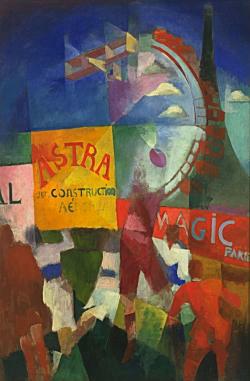
L'Equipe de Cardiff
1913
Robert Delaunay
(12 April 1885 - 25 October 1941)
_______________________
Howard Zinn on Class in America
Video Interview
_______________________
Movement
Giorgio Agamben
My malaise came from the fact that for the first time I realised that this word was never defined by those who used it. I could have not defined it myself. In the past I used as an implicit rule of my thinking practice : the formula ’when the movement is there pretend it is not there and when it’s not there pretend it is’. But I didn’t know what this word meant. It is a word everyone seems to understand but no one defines. For instance where does this word come from ? Why was a political decisive instance called movement ? My questions come from this realisation that it is not possible to leave this concept undefined, we must think about the movement because this concept is our unthought, and so long as it remains such it risks compromising our choices and strategies. This is not just a philological scruple due to the fact that terminology is the poetic, hence productive moment of thought, nor do I want to do this because it is my job to define concepts, as a habit. I really do think that the a-critical use of concepts can be responsible for many defeats. I propose to start a research that tries to define this word, so I will try to just begin this with some basic considerations, to orient future research.......(more)
_______________________

photo - mw
_______________________
Similizing Thoughts
Margaret Cavendish
(1623-1673)
Thoughts as a Pen do write upon the Braine;
The Letters which wise Thoughts do write, are plaine.
Fooles Scribble, Scrabble, and make many a Blot,
Which makes them Non-sense speak, they know not what.
Or Thoughts like Pencils draw still to the Life,
And Fancies mixt, as colours give delight.
Sad melancholy Thoughts are for Shadowes plac'd,
By which the lighter Fancies are more grac'd.
As through a dark, and watry Cloud, more bright,
The Sun breakes forth with his Resplendent Light.
Or like to Night's black Mantle, where each Star
Doth clearer seem, so lighter Fancies are.
Some like to Rain-bowes various Colours shew,
So round the Braine Fantastick Fancies grow.
Selected Poems of Margaret Cavendish
Duchess of Newcastle
Margaret Cavendish
The first poetess of science
The Atomic Poems of Margaret (Lucas) Cavendish
The autobiography of Margaret Cavendish
Margaret Cavendish: gender, genre, exile
Emma L. E. Rees
google books
Margaret Cavendish and the exiles of the mind
Anna Battigelli
google books
The blazing world and other writings
Margaret Cavendish
google books
Political writings
Margaret Cavendish
google books
As One Phoenix
Four Seventeenth-century women poets
_______________________

photo - mw
_______________________
The System: Capitalism and its Role in American Society’s Plunge into the Abyss
Part I
Manuel Valenzuela
At birth new life has breathed freely for the first time, no longer attached to the love and nutrition of a mother. With the severing of the umbilical chord a virgin child becomes an entity upon the world, individual and independent, resplendent in energy and captivating in perfection. The promise of a new day is captured in the beauty of new life. At no other moment is the greatness of humankind magnified so bright, flashing before the world the vast potential of Man, the end result of our existence at its most perfect moment of splendor. The awakening of hope is displayed by the opening of eyes seeing the world for the very first time.
The fusing together of man and woman, at our moment of pure animal instinct and brilliant human union transcends society’s demons to form an intertwined tango of symphonious attachment that spawns the continuation of the human species. For millions of years we have procreated, spreading our seed to all corners of the only home we know, hoping to improve on the gains of previous generations, hoping to make better the lives of our future civilization.
At birth the radiance of freedom is exhibited by the first gasp for air a newborn takes. It is at that moment that the human condition is at its most free, before the constraints of society are enabled or the corrosive tentacles of the caste one is born into are put in motion. It is at that moment that humanity is nearest perfection, combining innocence and goodness before the evils of civilization are thrust upon newborn life.
With the first few breaths a newborn’s freedom will be proclaimed to the world, before American society begins to submerge yet another victim into the cesspool of capitalistic exploitation that, from cradle to grave, enslaves a citizen and defines his or her existence. It is the minor escape from our capitalistic destiny, manifested in the form of our first gasps for oxygen that is the purest form of freedom, allowing us to hope that a better world is indeed possible....(more)
_______________________

Charles Olson ~ Polis Is This
Charles Olson and the persistence of place
a film directed by Henry Ferrini
_______________________
The Mad Ones
John Leland reviews The Beats: A Graphic History, text by Harvey Pekar and others, art by Ed Piskor and others.
In the introduction, Harvey Pekar and the lefty historian Paul Buhle write that the book has “no pretension to the depth of coverage and literary interpretation presented by hundreds of scholarly books in many languages,” adding that “no one claims this treatment to be definitive. But it is new, and it is vital.”
The pages that follow, mostly written by Pekar and illustrated by his frequent collaborator Ed Piskor, live up to both of those claims, while also living down to the caveats. “The Beats” is plainly celebratory. The writers and artists don’t try to untangle the Beats’ hazy history — which is often drawn from works of fiction — or to examine their writings. There are almost no quotations.
But the medium provides a new angle on a familiar story, in a voice more directly empathetic than those of many prose histories. It gives the hipsters back their body language. In a book that is largely about license and the enlightened rebel, it is easy to find reflections of both in the graphic form. The panels, which are flat and often horrific, capture the dullness and insanity not only of the lives the Beats sought to escape but of the ones they made in their place. The Beats here inhabit a world that looks a lot like Harvey Pekar’s Cleveland. No wonder they had to go go go and not stop till they got there. ...(more)
_______________________

Windows Open Simultaneously
(First Part, Third Motif)
Robert Delaunay
1912

Baiyinnuoer, China
The Earth
Li Wei
_______________________
from
The Topography of History
Thomas McGrath
Beyond the corrosive ironies of prairies,
Midnight savannas, open vowels of the flat country,
The moonstruck waters of the Kansas bays
Where the Dakotas bell and nuzzle at the north coast,
The nay-saying desolation where the mind is lost
In the mean acres and the wind comes down for a thousand miles
Smelling of the stars’ high pastures, and speaking a strange language—
There is the direct action of mountains, a revolution,
A revelation in stone, the solid decrees of past history,
A soviet of language not yet cooled nor understood clearly:
The voices from underground, the granite vocables.
There shall that voice crying for justice be heard,
But the local colorist, broken on cliffs of laughter,
At the late dew point of pity collect only the irony of serene stars.
(....)
How shall that Sentimentalist love the Mississippi?
His love is a trick of mirrors, his spit’s abstraction,
Whose blood and guts are filing system for
A single index of the head or heart’s statistics.
Living in one time, he shall have no history.
How shall he love change who lives in a static world?
His love is lost tomorrow between Memphis and
the narrows of Vicksburg.
But kissed unconscious between Medicine Bow and Tombstone
He shall love at the precipice brink who would love these mountains.
Whom this land loves shall be a holy wanderer,
The eyes burned slick with distances between
Kennebunkport and Denver, minted of transcience.
For him shall that river run in circles and
The Tetons seismically skipping to their ancient compelling music
Send embassies of young sierras to nibble from his hand.
His leaves familiar with the constant wind,
Give, then, the soils and waters to command.
Latitudinal desires scatter his seed,
And in political climates sprout new freedom.
But curst is the water-wingless foreigner from Boston,
Stumping the country as others no better have done,
Frightened of earthquake, aware of the rising waters,
Calling out “O Love, Love,” but finding none.
...(more)

Thomas McGrath
(1916-1990)
McGrath has published in every major poetry journal in the United States, from Poetry, where his first published poem appeared in 1938, to The Nation, American Poetry Review, and a nearly endless list of less well-known poetry journals. Among his most important books, in addition to those al- ready mentioned, are Figures from a Double World (Chicago: Alan Swallow, 1955), and The Movie at the End of the World: Collected Poems (Chicago: Alan Swallow, 1972.) The number of his chapbooks and other books of verse, along with a vast number of uncollected poems, promise a most ar- duous search for his future bibliographer.
McGrath then is a western American, a radical, a modern and “post- modern,” witty, angry, important, as yet neglected poet. Most who know his work believe that his importance in the body of recent American poetry will continue to grow, especially as additional parts of Letter to an Imaginary Friend become available in book form. His reputation will grow because McGrath has written one of the few major long poems in recent literature; it will grow because his sense of place, of the western United States in par- ticular but of the United States as a whole, as well as of the history and politics of these cultures is, if heterodox, profound and important; it will grow because his sense of the human experience, of the agony and horror, the humor and beauty, ranks with the finest that recent American poetry has produced; and it will grow because he has contributed and continues to contribute important explorations in poetic form and in the nature of the American language.
- Frederick Stern [pdf]
.....................................................
excerpt, from Part III
Letter to an Imaginary Friend
Thomas McGrath
Green permission …
Dusk of the brass whistle . .
Gooseberry dark.
Green moonlight of willow.
Ironwood, basswood and the horny elm. ; ‘ :
June berry; box-elder; thick in the thorny brake
The black choke cherry, the high broken ash and the slick
White bark of poplar.
I called the king of the woods,
The wind-sprung oak.
I called the queen of ivy,
Maharani to his rut-barked duchies;
Summoned the foxgrape, the lank woodbine,
And the small flowers: the wood violets, the cold
Spears of the iris, the spikes of the ghostflower—
It was before the alphabet of trees
Or later.
Runeless I stood in the green rain
Of the leaves.
Waiting.
Nothing.
Echo of distant horns.
Then
Under the hush and whisper of the wood,
I heard the echoes of the little war.
...(more)
.....................................................
Thomas McGrath biography and poems at the Poetry Foundation
Destroy the dictionaries
Jelena Petrovic on Thomas Mcgrath
Reflections on Thomas McGrath's Letter to an Imaginary Friend
Doren Robbins
Frederick C. Stern has a chapter on McGrath in A Literary History of the American West _______________________

Kaveh Golestan
1950 - 2003
Kaveh Golestan 1950-2003:
A Look at the Life of the Pulitzer Prize Winning Iranian Photojournalist
Who Was One of 10 International Journalists Killed in Iraq
_______________________
Is Everyday Language Sufficient To Embody Everyday Experience?
Carlo Parcelli
FlashPoint
When a reader early on in Deconstructing the Demiurge: Millennial Mathematics: the Centos encounters Schopenhauer's insistence from The World as Will and Idea that there exists a "'state of philosophical innocence' of one 'who has not mastered Kant'", he or she probably disregards it as a narrow historical and philosophical conceit. But Schopenhauer goes on to state that this dismissive reader therefore "remains in the grip of [a] natural and childish realism." What better description of the poetic engagement of the everyday with everyday language! There are the apolitical implications as he or she "records" (actually parrots) "the order, the violence" without investigating "the idealization of observation and definition," and allowing "the ambition of the 'mathesis universalis'" to rampage unchecked. Without the deep critique of Schopenhauer through Kant and the execution of this critique in Deconstructing the Demiurge, Robert Creeley's disengagement from 'politicized' discourse seems not only justified, but in the negative way intended, absolutely rebellious.But what if we take the attack right to the enemy?
...(more)
.....................................................
Carlo Parcelli
a selection from:
Deconstructing the Demiurge: Eschatology of Reason:
‘The Gilded Index of Far-Reaching Ruin.’
Without usura the present is not splintered into futures.
Without usura hath no country a need of a standing army of three million
Nor billions of Simons rubber necking the train wreck only
To be crushed on the weal to Calvary.
Without usura nature need not put on its game theoretical face
To show mathematical proof by crushing
The world back to uninhabitable composure.
With usura Katrina, floods, drought, fire and pestilence.
With usura the revelers and their Revelation.
With usura the filth of existence outstrips language.
Usura rusteth chassis,
It hurls 3 million into the gutter.
It gnaweth at the caissons and cables
Contemptuous of Big Muddy.
Machines learneth to stunt Nature into patterns;
Usura slayeth the child in the streets;
Usura slayeth the child in her bed;
Usura slayeth the child in the field;
Usura slayeth the child in her school.
It stayeth the young man’s courting
Bringing a gelding to bed;
It lyeth between the young bride and the amputee
CONTRA NATURAM
They have bought whores for the World Bank Conference.
Corpses are set to banking
At the behest of usura.
More, including other installments of "Deconstructing the Demiurge"
Ezra Pound & Wall Streetflashpoint
_______________________
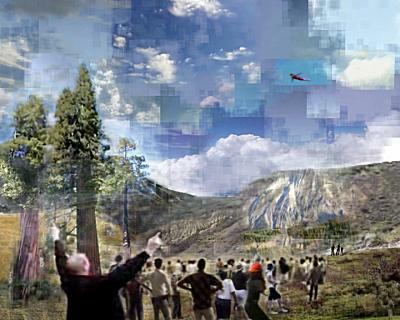
"Stump Speech"
Modern History
a series of collages
assembled exclusively from screen grabs
of Youtube videos
Josh Poehlein
via Jörg Colberg
_______________________
Who Reads an Early American Book?
a special issue of common-place
This special issue of Common-place gives us a chance to step back from the earnest defensiveness that has sometimes characterized early American literary history and delight publicly in the strange and wonderful books that are our American legacy.
_______________________
Common Day
Eric Linsker
conjunctions
Our failure in the waves
What is left of wind scuffling through wind
All meaning no content
A crust blossomed off by looking
Like human faces lapsing
Into the smooth body of the world
...(more)
_______________________
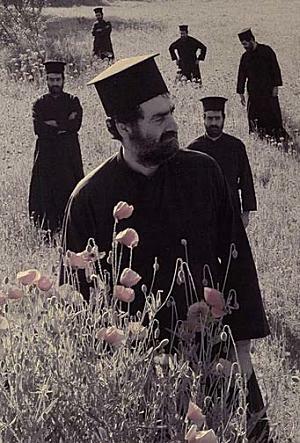
The Miracle of Ubiquity
Miracles & Co.
Joan Fontcuberta
_______________________
Spring in fragments
Eric Linsker
Well of course I like to sit around and change
Then after a while everything else, to the last things
Are there no helpings on my back
Behave yourself now
There was an amount of time you
took to hang up the phone
after you hung up the phone
You hold an orange but will
not move your lips
The human is capable of looking at another’s back
and marching
Stay warm there
Eric Linsker - three poems
nthposition
_______________________
Got Poetry?
Jim Holt
... my case for learning poetry by heart. It’s all about pleasure. And it’s a cheap pleasure. Between the covers of any decent anthology you have an entire sea to swim in.(....)
Myth No. 1: Poetry is painful to memorize. It is not at all painful. Just do a line or two a day.
Myth No. 2: There isn’t enough room in your memory to store a lot of poetry. Bad analogy. Memory is a muscle, not a quart jar.
Myth No. 3: Everyone needs an iPod. You do not need an iPod. Memorize poetry instead. via languagehat
_______________________
The Bread Of This World
Thomas McGrath
On the Christmas white plains of the floured and flowering kitchen table
The holy loaves of the bread are slowly being born:
Rising like low hills in the steepled pastures of light —
Lifting the prairie farmhouse afternoon on their arching backs.
It must be Friday, the bread tells us as it climbs
Out of itself like a poor man climbing up on a cross
Toward transfiguration.
And it is a Mystery, surely,
If we think that this bread rises only out of the enigma
That leavens the Apocalypse of yeast, or ascends on the beards and beads
Of a rosary and priesthood of barley those Friday heavens
Lofting...
But we who will eat the bread when we come in
Out of the cold and dark know it is a deeper mystery
That brings the bread to rise:
it is the love and faith
Of large and lonely women, moving like floury clouds
In farmhouse kitchens, that rounds the loaves and the lives
Of those around them...
just as we know it is hunger —
Our own and others — that gives all salt and savor to bread.
But that is a workaday story and this is the end of the week.
*
It is only under the branchy tree of noon in the round song of the colloquy of occupations that the building is put together. In that golden potlatch, in a confederation of wild talk unstable as a union of Sioux Indians, the building goes up. Community of dream and sweat.
*
My dead father comes back
In the shape of my little son.
And I sing him to sleep with his songs
Still in my own child's ear.
*
Poetry is a sophisticated scream.
The Movie at the End of the World
Collected Poems
Thomas Mcgrath
_______________________
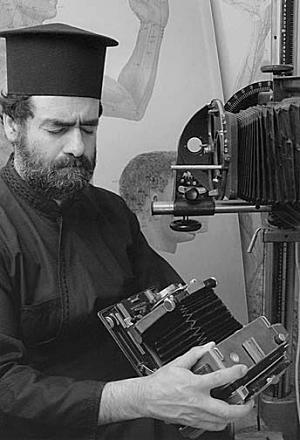
The Miracle of Thoughtography
Joan Fontcuberta
_______________________
The End of History, which is the Corporate global slogan, is not a prophecy, but an order to wipe out the past and what it has bequeathed everywhere. The market requires every consumer and employee to be massively alone in the present.
-
John Berger

Habana Este
Deena Stryker Photographs
1963-1964 and undated
from Stryker's two working trips to Cuba
_______________________
“the Brain Is The Ultimate Storytelling Machine, And Consciousness Is The Ultimate Story”
Richard Powers
the believer
Our theories about the world are deeply emotional, to us. Voiced idea is character.(....)
Story is the mind’s way of molding a seeming whole from out of the messiness of the distributed, modular brain. At the same time, shared stories are the only way anyone has for escaping the straightjacket of self. Good medicine has always depended on listening to histories. So any attempt to comprehend the injured mind naturally inclines toward all the devices of classic storytelling. Neurological case histories exist in a hybrid place between descriptive science and reflective art, a halfway place much like the narrated self’s.(....)
Estrangement seems to have become the baseline condition for life in terrorized America. After November 2000, after September 2001, after the Patriot Act and the detainee bill, after Gitmo and Abu Ghraib, our stories—public and private—keep scrambling to keep America whole, continuous, and coherent, to place it. The basic outline of life here still looks familiar. But for a lot of people, the place no longer feels recognizable.
It seems to me that evil—the word of the hour, again—might be the willful destruction of empathy. Evil is the refusal to see oneself in others.
I truly don’t know what role the novelist can play in a time of rising self-righteousness and escalating evil. Any story novelists create to reflect life accurately will now have to be improvised, provisional, and bewildered. But I do know that when I read a particularly moving and achieved work of fiction, I feel myself succumbing to all kinds of contagious rearrangement. Only inhabiting another’s story can deliver us from certainty....(more)
_______________________
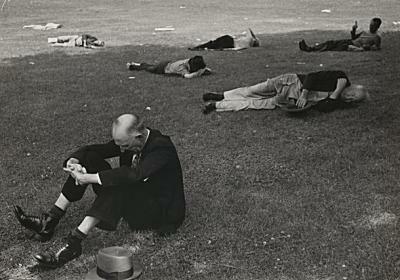
Boston Common
Henri Cartier-Bresson
1947
_______________________
Oh the stories I could tell you if I were easy. What a rabble in my head, what a gallery of moribunds. Murphy, Watt, Yerk, Mercier and all the others. I would never have believed that - yes, I believe it willingly. Stories, stories. I have not yet been able to tell them. I shall not be able to tell this one.
-
Molloy, Part II
_______________________
from
Scroll
Tom Clark
Beyond the Pale
Time passes and all we know is this colorless white-gray world
These white-dark hulking shapes this wet gray-white snow
We've never been here
We will never be back
The tracks go on unscrolling
And we go on following the tracks
These endless parallels endlessly unravelling
...(more)
_______________________
 Solerno
Andreas Gursky
1990 1 2 3 4 5 6
_______________________
Payback
Debt and the shadow side of wealth
Margaret Atwood
The CBC Massey Lectures 2008
_______________________
Hegel and the Impossibility of the Future in Science Fiction Cinema [pdf]
Todd McGowan
... many contend that science fiction cinema does not transcend the horizon of the ruling ideology at all. According to such critics, rather than envisioning an authentic future that calls into question the ruling ideology of the present, science fiction cinema tends, on the whole, in the direction of ideological conformity. That is to say, this cinema inures us to the ideology that we experience on a daily basis, naturalising that ideology. As Benjamin Shapiro argues, science fiction films often present ‘a future that threatens to destroy not only everything we know, but how we know everything … but even then, our collective social consciousness, our values and beliefs will survive. We are not and, in the final analysis, will not become the alien’ (Shapiro 1990, 111).4 That is to say, science fiction film functions as the supplement of the ruling ideology as it attests to that ideology’s permanence.
If there is anything approaching a critical consensus about science fiction cinema, it is this critique of the genre’s link to the present ruling ideology and to present conditions of production - a critique that centres around the limits of its ability to depict an alternative future or to envision a thoroughgoing rejection of the ruling ideology. This consensus can provide a point of departure for rethinking the ethical and political value of science fiction cinema, but only if we add a Hegelian twist. This twist would allow us to see the widespread failure of science fiction cinema to envision an alternative future not as a contingent shortcoming or an indication of a lack of imagination among creators of science fiction, but instead as a necessary - and fecund - limitation of the genre.
Film-Philosophy
Volume 13, Issue No. 1, 2009
via infinite thØught
_______________________
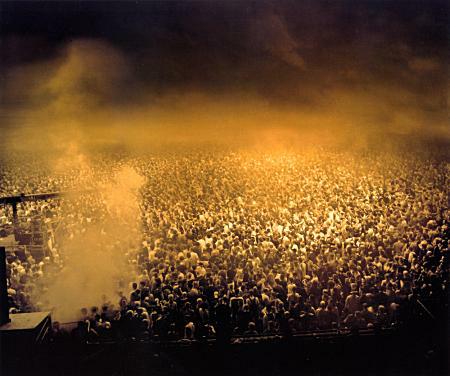
May Day III. 1998
Enormous Frozen Spectacles
A Podcast _______________________
Profanations
Giorgio Agamben
Trans. Jeff Fort
pdf here
Chapter Six
Desiring
There is nothing simpler and more human than to desire. Why, then, are om desires unavowable for us? Why is it so difficult for us to put them into words? It is so difficult, in fact, that we end up hiding them, constructing a crypt for them somewhere within ourselves, where they remain embalmed, suspended and waiting.
We are unable to put our desires into language because we have imagined them. In reality, the crypt contains only images, like a picture book for children who do not yet know how to read, like the lmagerie d'Epinal of an illiterate people. The body of desires is an image. And what is unavowable in desire is the image we have made of it for ourselves.
To communicate one's desires to someone without images is brutal. To communicate one's images without one's desires is tedious (like recounting one's dreams or one's travels). But both of these are easy to do. To communicate the imagined desires and the desired images, on the other hand, is a more difficult task. And that is why we put it off until later. Until the moment when we begin to understand that desire will remain forever unfulfilled - and that this unavowed desire is ourselves, forever prisoners in the crypt.
The messiah comes for our desires. He separates them from images in order to fulfill them. Or rather, in order to show they have already been fulfilled. Whatever we have imagined, we have already had. There remain the (unfulfillable) images of what is already fulfilled. With fulfilled desires, he constructs hell; with unfulfillable images, limbo. And with imagined desire, with the pure word, the beatitude of paradise. _______________________
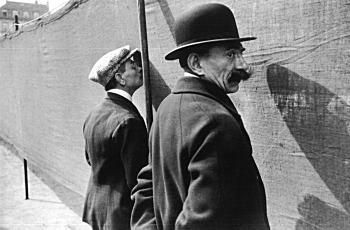
Brussels
Henri Cartier-Bresson
1932
_______________________
Douglas Rothschild —two poems
Call to Prayer
Douglas Rothschild
"If there is a plan, perhaps this too
is part of the plan, as when the subway
turns on a switch, the wheels screeching
against the rails, & the lights go out;
but are on again in a moment."
--Charles Reznikoff
If there is a plan. If there is not a plan.
It has worked out just as well at least
this is what you've expected to believe.
Lick
your waxy lips, adjust your hat, & try
to remember your name enough to put
it out of your head. Give you something
other to do than merely pursue a course
of results & the movement itself Byzan-
tine.
An elaborate, intricate mosque is beyond.
Only you instead insist on stepping back,
viewing the minaret, & remembering
the compassion of the muezzin's call to prayer.
An image of nothing than better signifiers
confusing or absolute.
Douglas Rothschild's first full-length collection of poems, Theogony, is now available from Subpress.
_______________________
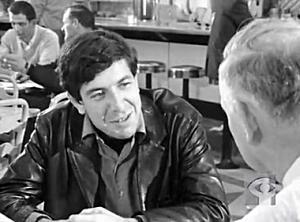
Ladies and Gentlemen... Mr. Leonard Cohen
Donald Brittain, Don Owen
1965 44 min
nfb
_______________________
Cats
Charles Baudelaire
April 9, 1821 - August 31, 1867
translated by William Aggeler
Both ardent lovers and austere scholars
Love in their mature years
The strong and gentle cats, pride of the house,
Who like them are sedentary and sensitive to cold.
Friends of learning and sensual pleasure,
They seek the silence and the horror of darkness;
Erebus would have used them as his gloomy steeds:
If their pride could let them stoop to bondage.
When they dream, they assume the noble attitudes
Of the mighty sphinxes stretched out in solitude,
Who seem to fall into a sleep of endless dreams;
Their fertile loins are full of magic sparks,
And particles of gold, like fine grains of sand,
Spangle dimly their mystic eyes.
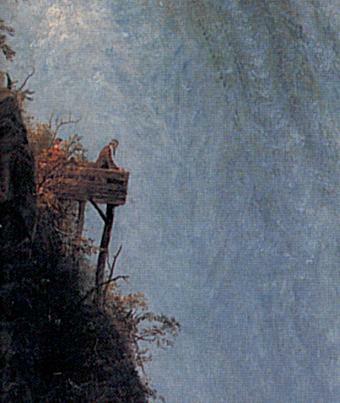
Niagara Falls, from the US Side
detail
Frederic Edwin Church
1826-1900
_______________________
The Rise of Capitalism
Donald Barthelme
The first thing I did was make a mistake. I thought I had understood capitalism, but what I had done was assume an attitude -- melancholy sadness -- toward it. This attitude is not correct. Fortunately your letter came, at that instant. "Dear Rupert, I love you every day. You are the world, which is life. I love you I adore you I am crazy about you. Love, Marta." Reading between the lines, I understood your critique of my attitude toward capitalism. Always mindful that the critic must "studiare da un punto di vista formalistico e semiologico il rapporto fra lingua di un testo e codificazione di un -- " But here a big thumb smudges the text -- the thumb of capitalism, which we are all under. Darkness falls. My neighbor continues to commit suicide, once a fortnight. I have this suicides geared into my schedule because my role is to save him; once I was late and he spent two days unconscious on the floor. But now that I have understood that I have not understood capitalism, perhaps a less equivocal position toward it can be "hammered out." My daughter demands more Mr. Bubble for her bath. The shrimp boats lower their nets. A book called Humorists of the 18th Century is published. ...(more)
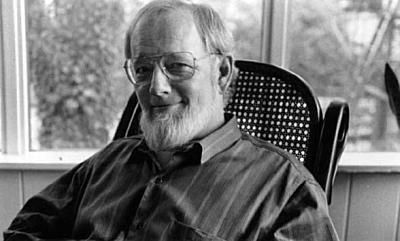
Donald Barthelme
April 7, 1931 – July 23, 1989
photo: Wendy Watriss
Donald Barthelme's barthelmismo
jessamyn
Sixty stories
Donald Barthelme google books
The Dead Father
Donald Barthelme
google books
Introduction to The Writings of Donald Barthelme
Thomas Pynchon
Melancholy. As any Elizabethan could tell you if they all weren't dead, melancholy is a far richer and more complex ailment than simple depression. There is a generous amplitude of possibility, chances for productive behavior, even what may be identified as a sense of humor. Barthelme's was a specifically urban melancholy, related to that look of immunity to joy or even surprise seen in the faces of cab drivers, bartenders, street dealers, city editors, a wearily taken vow to persist beneath the burdens of the day and the terrors of the night. Humor in these conditions leans toward the anti-transcendent -- like jail humor and military and rodeo humor, it finds high amusement in failure and loss, and it celebrates survival one day, one disaster, to the next....(more)
_______________________

Chozas al Borde del Rio
José Ignacio Fletes Cruz
Nicaraguan Primitivista Art
Indigo Arts Gallery
via Plep - NY
_______________________
Run ragged
A. R. Ammons
(1926–2001)
I said I don't want to be older, but it's be older
and older or nothing, right: and day by day
it's been older every day since the beginning:
still, there was a bracket of young years
within which one could say, these are not the
older years or the baby years: there are, as
Shakespeare said, groups of time, the
transitions from one group to another usually
unalarming: people who have nothing to say
should say nothing: they should drum syllables
or squeeze verbs (or nouns) or cast them like
die, craps, creeps: for example, I don't
feel at home in this universe and it may be
the only one: that is so pathetic: I think
that is so heartrending with content:
how can the place you come from not be your
home: is the only way to make a phrase
interesting to make it sound like it's not a
phrase: or it could be two phrases or go two
different ways when you are really going nowhere
well, the human race needs a better track,
the track itself worn or grown over.
_______________________
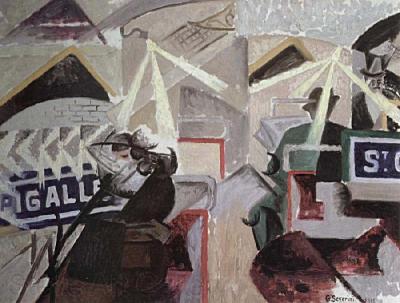
Nord-Sud
Gino Severini
b. April 7 1883
_______________________
Stanzas: Word and Phantasm in Western Culture
Giorgio Agamben
Trans. Ronald L. Martinez
The split between poetry and philosophy testifies to the impossibility, for Western culture, of fully possessing the object of knowledge (for the problem of knowledge is a problem of possession, and every problem of possession is a problem of enjoyment, that is, of language). In our culture, knowledge (according to an antinomy that Aby Warburg diagnosed as the "schizophrenia" of Western culture) is divided between inspired-ecstatic and rational-conscious poles, neither ever succeeding in wholly reducing the other. Insofar as philosophy and poetry have passively accepted this division, philosophy has failed to elaborate a proper language, as if there could be a royal road to truth that would avoid the problem of its representation, and poetry has developed neither a method nor self-consciousness. What is thus overlooked is the fact that every authentic poetic project is directed toward knowledge, just as every authentic act of philosophy is always directed toward joy. The name of Holderlin -of a poet, that is, for whom poetry was above all problematic and who often hoped that it would be raised to the level of the mechane (mechanical instrument) of the ancients so that its procedures could be calculated and taught-and the dialogue that with its utterance engages a thinker who no longer designates his own meditation with the name of "philosophy" are invoked here to witness the urgency, for our culture, of rediscovering the unity of our own fragmented word.
Criticism is born at the moment when the scission reaches its extreme point. It is situated where, in Western culture, the word comes unglued from itself; and it points, on the near or far side of that separation, toward a unitary status for the utterance. From the outside, this situation of criticism can be expressed in the formula according to which it neither represents nor knows, but knows the representation. To appropriation without consciousness and to consciousness without enjoyment criticism opposes the enjoyment of what cannot be possessed and the possession of what cannot be enjoyed. In this way, criticism interprets the precept of Gargantua: "Science without consciousness is nothing but the ruin of the soul." What is secluded in the stanza of criticism is nothing, but this nothing safeguards unappropriability as its most precious possession. pdf here
_______________________
An Interview With Poet Nick Piombino
What attracts me to poetry has some things in common with what attracted me to psychoanalysis and philosophy. It really was the philosophical side of poetry I was interested in, even though I started off as a singer and the lyrical aspect attracted me also. I was attracted to an art form with a kind of lyricism—not so much the expressive side of poetry. Even now, more than ever, it isn’t so much the aesthetic side of poetry that attracts me. It has more to do with understanding the mind and understanding life. That attracts me to literature—and to psychoanalysis. It's really that communality that I'm interested in. ...(more) fait accompli
_______________________
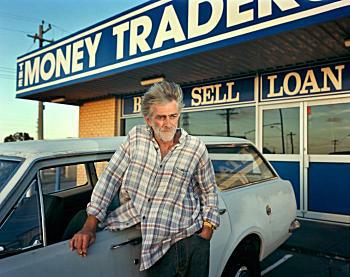
Suburban Splendour
Graham Miller
I guess the reason people have such a hard time with the constructed image is that for them it somehow feels like cheating. They still believe that because the photograph so closely resembles reality that somehow it must also be "true". For me photography is much like writing- in the sense that you can approach writing about a subject or photographing it as fiction or non-fiction. Both are equally valid, and both are able to speak of the human experience in a moving and profound way. It does puzzle me when people go on about it. It just doesn't feel the right approach for me to work in a traditional photojournalistic sense.
-
Graham Miller
_______________________
Strange Days
James Howard Kunstler
Even while a wave of reflex nausea washed over America last week, and the unemployment rolls swelled by much more than another half million, the greatest stock market suckers' rally in seventy years pulled in the last of the credulous. These are strange days. The earth is heaving and the buds swelling again -- at least north of the equator, where most of the action is -- and the global economy, which was supposed to be a permanent new add-on to the human condition, is sloughing away in big horrid gobs. But no one in charge of anything can believe it. The banking fiasco has introduced so much noise into the system that world leadership can't think straight.(....)
The rally in stocks, the financials in particular, could go on for another month or two. In the meantime, banks are striving desperately to avoid calling in more bad loans -- especially in commercial real estate, malls, strip malls, Big Box power centers -- because they don't want any more losses on their balance sheets. That can only go on for so long, too. Sooner or later the daisy chain of credibility in the fundamental transactions of business lose legitimacy and something's got to give.
My guess is it will first take the form, sometime after Memorial Day (but maybe sooner) of wholesale liquidations of everything under the North American sun: companies, households, chattels, US Treasury paper of all kinds, and, of course, the S & P 500. We'll soon find out whether an organism the size of the United States can run an economy based on one family selling the contents of its garage to the family next door. My guess is that this type of economy won't support the standards of living previously enjoyed in places like Dallas and Minneapolis....(more)
_______________________
Resist or Become Serfs
Chris Hedges
America is devolving into a third-world nation. And if we do not immediately halt our elite's rapacious looting of the public treasury we will be left with trillions in debts, which can never be repaid, and widespread human misery which we will be helpless to ameliorate. Our anemic democracy will be replaced with a robust national police state. The elite will withdraw into heavily guarded gated communities where they will have access to security, goods and services that cannot be afforded by the rest of us. Tens of millions of people, brutally controlled, will live in perpetual poverty. This is the inevitable result of unchecked corporate capitalism. The stimulus and bailout plans are not about saving us. They are about saving them. We can resist, which means street protests, disruptions of the system and demonstrations, or become serfs. ...(more)
_______________________
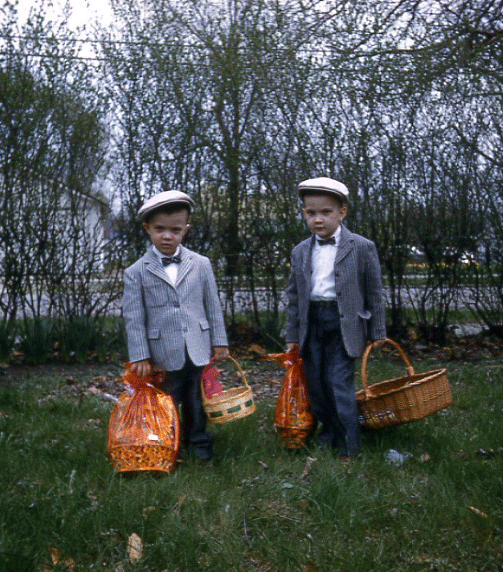
The Bar Mitzvah and Other Tales of Living in Stereo
Square America
_______________________
An Improvisation For Angular Momentum
A.R. Ammons
Walking is like
imagination, a
single step
dissolves the circle
into motion; the eye here
and there rests
on a leaf,
gap, or ledge,
everything flowing
except where
sight touches seen:
stop, though, and
reality snaps back
in, locked hard,
forms sharply
themselves, bushbank,
dentree, phoneline,
definite, fixed,
the self, too, then
caught real, clouds
and wind melting
into their directions,
breaking around and
over, down and out,
motions profound,
alive, musical!
...(more)
A. R. Ammons: "God Is the Sense the World Makes without God."David Lehman American Poetry Review, May/Jun 2006
Considering the radiance: essays on the poetry of A.R. Ammons
David Burak, Roger Gilbert
google books _______________________

SFMOMA, 2007
Gray City
George Le Chat
hiding in plain sight
_______________________
Giving up Words with Words
A. R. Ammons
Isn’t it time to let things be:
I don’t pick up the drafts-book,
I ease out of the typewriter room:
bumblebees’ wings swirl
free of the fine-spun of words:
the brook blinks
a leaf down-bed, shadow mingling,
tumbling with the leaf,
with no help from me: do things let alone
go to pieces: is rescue written
already into the motions of coherence:
have words all along
imitated work better done undone:
one thinks not ruthlessly to bestir again:
one cases off harsh attentions
to watch the dew dry, the squirrel stand
(white belly prairie-dog erect)
the mayfly cling daylong to the doorscreen
Loren Webster on A.R. AmmonsIn a Dark Time ... The Eye Begins to See
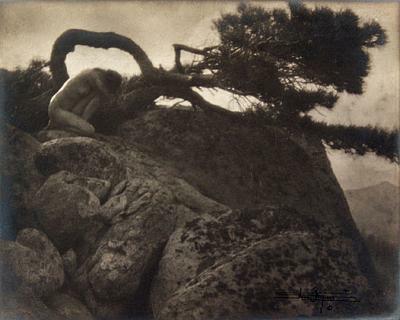
The Lone Pine
1908
Anne W. Brigman
1869 - 1950
Brigman, Kasebier, et al Positives
George Eastman House
491 Selected Images
_______________________
Estuary
Alexei Parshchikov
Translated from the Russian by Wayne Chambliss
Words Without Borders
Knee deep in mud. For centuries, we have stood where the bog waters suck.
In the grasp of the inanimate,
there are no straight lines. A sack race is good for a laugh.
And like the Lord’s own trumpets, funnels multiply in the muck.
Once again, darling, yours is a resinous, intimate whisper.
Once again, I’ll bring you pelts and sprigs of heather.
But it’s all a whim of the estuary, spidering thin borders.
By dawn, it looks like a golden wand. At night, a wooden recorder.
The dragonflies and branches emanate a velvet current
into skies and loam. This isn’t a road. It’s a crossroad.
In the dead water, a bulging stretcher,
you will find no bridge, no cross, no forking path, no star.
Only a stone that looks like a cloud (both resemble
countless other points of the universe so familiar as to make one tremble).
Only the dislocation of a landscape, sagging like a deflated ball.
Only a hole in the ground, or the lack of a hole.
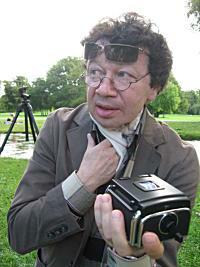
Alexei Parshchikov
25 May 1954 – 3 April 2009
Alexei Parshchikov - three poems
Translated by Wayne Chambliss
octopus
Theses On Metarealism And Conceptualism
Mikhail Epstein
Translated by Slobodanka Vladiv-Glover
In the book: Russian Postmodernism: New Perspectives on Post-Soviet Culture
After the future: the paradoxes of postmodernism and contemporary Russian culture
Mikhail Epstein, Anesa Miller-Pogacar
Translated by Anesa Miller-Pogacar
google books
On Russian Meta-Realist Poetry: A Conversation with Ilya Kutik
Reginald Gibbons
American Poetry Review, Mar/Apr 2007
Russian Postmodernism: An Oxymoron?
Marjorie Perloff
Postmodern Culture (January, 1993)
On Apophatic Poetics: Part Two
Reginald Gibbons
American Poetry Review, Mar/Apr 2008
Words can form images that are like windows through which the hearer or reader apprehends what is present but is only graspable through its hiddenness, absence, or opposite. As the Russian Meta-realist poet Alexei Parshchikov has written to me {in English), "the apophatic disposition is no doubt very important for poetic images, as it marks places which exist neither materially nor virtually (i.e. in cyberspace). And it is hard to figure out a ground for such a framework in our psyche. Meanwhile we do know about it and are even ready to imagine such a minus place. We are aware somehow of the presence of these 'negationaT sites and use them as if they were conventional points of reference, even though they rest upon a different mental equilibrium. [...] We are looking for limits of language, where imagination just begins." {I take "imagination" here to mean an image-forming that is not limited by the parameters of our five senses but creates "images" evoked by language even though they elude our senses directly.)...(more)
_______________________

Fernand Khnopff
(1858–1921)
At the Altar of Hypnos
Alexei Parschikov on Fernand Khnopff
_______________________
I think Guattari had the right idea in proposing a model in which we strove to think the intersection of regimes of signs, the biological body, economics, nature, etc… A highly complex ecological, networked model. The problem lies in dogmatic theoretical orientations that, ironically, suffer from Zizek’s definition of metaphysics: any orientation of thought that raises a part of the whole to the explanatory principle of all other elements in the whole. Certainly this is the case with Lacanian psychoanalysis.
Electro-Chemical Signifiers
larvalsubjects on Psychoanalysis
At the heart of the Lacanian theory we are told that affects and symptoms are structured by the signifier. “The unconscious is structured like a language,” we are told. The symptom is thus a sort of mute speech. It disappears when we bring it to real speech. Our compulsion to repeat arises from our constitutive alienation in language that produces an irreducible gap that can never be filled. Our symptoms and repetition, moreover, are intersubjectively structured as messages, as it were, to the Other.
Yet here, in this drug, there was no signifier, no Other, no language, but a simple chemical transformation. Had I gone to analysis to treat this depression I would have talked a good deal about the thoughts I was having, I would have produced signifiers, and my thought process would have seemed absolutely convincing. Yet chemically my brain would have remained the same (though it’s important to remember that speech, thought, and activity can actually change neurochemistry). The Lacanian might say that the drugs have simply clothed, dulled, or disguised my symptoms, hiding my unconscious. Yet I don’t think so. There has been a basic shift in thought and affect that isn’t simply a matter of signifiers. We find analogous phenomena with other substances. When you are suffering from nicotine withdrawal, the angry thoughts you’re having are absolutely convincing, seem justified, and seem completely disconnected from the absence of nicotine in your system. Yet when you smoke that cigarette, these thoughts and affects disappear like so much mist. Likewise, when I drink chardonnay, and drink wine or beer generally, I tend to become extremely affectionate and warm towards others. There is a shift in my entire thought process.
It seems to me that these sorts of phenomena pose a significant challenge to the Lacanian hypothesis of symptoms structured by the signifier. Of even deeper concern, it seems to me that phenomena like this, speaking as they do to neurochemistry rather than the signifier, pose a significant challenge to the Freudo-Lacanian concept of the compulsion to repeat and the death drive. Freud discovers the compulsion to repeat towards the end of his career, when he finds that there’s a limit to interpretation and its ability to dissolve symptoms. What if this limit has nothing to do with the signifier or language, and everything to do with certain neurochemical structures in certain patients?
My point is not that we should ignore language, talk, “the subject”, signs, etc. My point is that if we adopt a Lacanian approach to treatment we are very likely to miss these other factors. Indeed, it is not unusual to hear Lacanians dismissing those patients that say they benefited from these things, that they don’t think their particular symptom is structured around the signifier, and even hinting that they’ve been duped by the pharmaceutical industry and by neo-liberal capitalism, in a way that is morally culpable for not recognizing their status as a desiring subject....(more)
_______________________
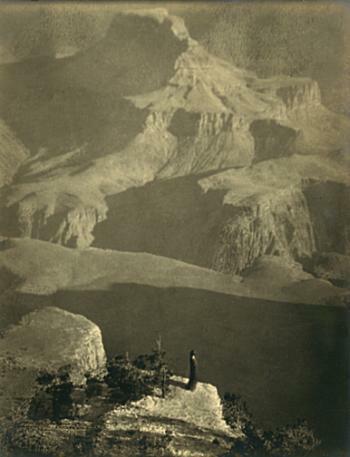
Sanctuary
Anne W. Brigman
1921 1 2 3
_______________________
The Positive Image:
Women Photographers in Turn of the Century America
C. Jane Gover
google books
American women photographers: a selected and annotated bibliography
Martha Kreisel
google books
_______________________
It is easy enough to poke fun at the utopian whispers and creeping apocalypticism of the gloomy artistes, and the song doesn?t pass the opportunity by. But behind this there is an unspoken question that makes the song finally haunting: what does pop music do when it does have this to sing about? Pop music as we understand it: something not much older than the Berlin Wall, something which could be the Soviet Union's grand-daughter. Having turned its 200-second attentions on a fairly regular basis to politics, to social change, to revolution, what does pop music do when confronted with an overwhelming surfeit of same?
- Joshua Clover
jane dark (sugarhigh!) has begun posting some excerpts from Clover's 1989: Bob Dylan Didn't Have This to Sing About
_______________________
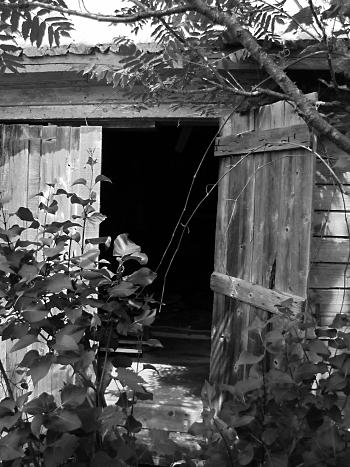
photo - mw
_______________________
Oil
Alexei Parshchikov
translated by Sergey Levchin and Wayne Chambliss
Fascicle
Halfway into the journey – just puncture me with a compass.
Zero-kilometer, where fabled rivers converge, reversing polarity: drain.
Suppose it a tunnel, at once the air is set tight as a lattice.
Hurray! You are launched from the maw of a soil-based yawn.
Hangnail, dangled all the way down to the switchflow entrails,
there to consult the register: vapors, extralarge rock, and the coiled bands.
You unfasten your jaw at the plywood façade like a conscript,
oil, the armed, double-barreled ram turns the corner: en garde!
Was it the flash of your whites – the dark maid leapt from her crypt and roams the garden,
or was it a wire dropped in the tub and the belle flickered and came up glass-eyed?
Point blast: oil, blinded, finds tertium, always non datur.
Sacked chimney retracts like a sleeve – oil, shuddering, mounts the rails.
Now you'd better watch out, convex mirror in hand she's a hawkeye.
As you sway on your rope you pass like floss through its hooked clove.
Everywhere, like drunken soldiers riding all night in a pissdrenched hallway,
oil droplet is dubbed, like hussein in a tub plus the Louvre.
...(more)
Fascicle - issue three winter '06 - '07
_______________________
The Complete Review
congratulations on the tenth anniversry
The Complete Review: the first decade
M.A.Orthofer
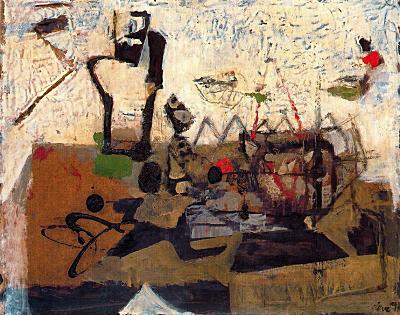
Antonio Clavé
1913 - 2005
209 images
_______________________
Experiment, for me, is not a formal tic, some avant-garde glaze or fashionista look. It is a processual question of writing some thinking into the page in the medium of language.
A visionary practice of cultural critique
Rachel Blau DuPlessis interviewed PhillySound: new poetry
... desires to change culture and politics often get mapped onto languages and conventions that already exist. This, sometimes, for the sake of "efficiency" or even "communicability." Like the joke about socialist realism-instead of boy meets girl, it's boy meets tractor. But some structure of feeling remains-"boy meets…" hasn't changed; the romance hasn't changed. Just the object has changed. This kind of syncretism is both powerful and absorptive (like Catholicism assimilating pagan and polytheistic holidays and materials), but it may mean that fundamental structures of genre, language, convention are not destabilized or restructured but just undergo point-for-point substitution. That's why a person can't assume that political radicalism means or implies literary radicalism. They are separable goals. (Whole books have been written about this! Often, in the current climate, by Language- inflected poets!)....(more)
_______________________
Writing on Black Silk
by Don Domanski
clouds in lowercase moths on their
maiden flights and grief ever returning
from somewhere high up in the poplar trees
it’s 2004 and I’m on the Yangtze River
where Li Po fell from his boat and drowned
trying to embrace the reflection of the moon
in the flowing water
same moon tonight same reflection
shadows of our masters still metastasizing
somewhere in the places of power
improvisations of mist still ineffable
stars still creating myth out of shrugs of light
indifferent to our attempts at divination
indifferent to our applied mathematics
tonight I’m a bit of pigment in a T’ang scroll
rusted blemish that bleeds through
from the future
bamboo along the shore brushed
dark and darker the mountains
raising their effigies and fetishes to heaven
ten million bales of black silk have unfurled
between the gorges the Celestials
like paper fish glow and float to the surface
their words for our sorrows unknown
to us still their silence on every subject
intricate and unwavering
a river crocodile slides under our boat
ink lines of its lips fixed in a permanent smile
its clinched armour a counterpane
for an arterial sleep blood’s dodge
in unlit waters someone’s heart at ease.
.....................................................
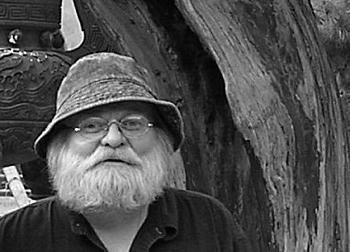 I can’t write without knowing that each thing I define will be erased in time. There are no safe and secure places for language. The death of meaning is like the extinction of a species. But other meanings come forth to fill each ecological niche. The poet routinely wipes out entire taxonomic groups in order to make room for new forms of life. This culling is necessary; the poet who doesn’t do this is in peril. You must join with the fragility of sentience, recognize the elementary or undifferentiated consciousness where language originates. Writing poetry is like playing the piano with your hair. You don’t know exactly why it works, but somehow you’re able to make music. What I’m describing is intuition, the golden hunch behind all the explanations and theories, which allows you to take advantage of the fluidity of meaning. To intuit is to step outside language and view it from the air. What’s seen when you’re flying over language are the ruins of custom and interpretation, mighty edifeces meant to last milennia. But in fact, they’re made of straw, built on flowing water. No one who is seriously writing poetry can live in them for long. I can’t write without knowing that each thing I define will be erased in time. There are no safe and secure places for language. The death of meaning is like the extinction of a species. But other meanings come forth to fill each ecological niche. The poet routinely wipes out entire taxonomic groups in order to make room for new forms of life. This culling is necessary; the poet who doesn’t do this is in peril. You must join with the fragility of sentience, recognize the elementary or undifferentiated consciousness where language originates. Writing poetry is like playing the piano with your hair. You don’t know exactly why it works, but somehow you’re able to make music. What I’m describing is intuition, the golden hunch behind all the explanations and theories, which allows you to take advantage of the fluidity of meaning. To intuit is to step outside language and view it from the air. What’s seen when you’re flying over language are the ruins of custom and interpretation, mighty edifeces meant to last milennia. But in fact, they’re made of straw, built on flowing water. No one who is seriously writing poetry can live in them for long.
Don Domanski
afterword to Earthly Pages: The Poetry of Don Domanski, selected with an introduction by Brian Bartlett.
Wilfrid Laurier University Press
via mirabile dictu
Don Domanski interview
Dangerous Words: Don Domanski and Metaphor
David O'Meara
Northern Poetry Review
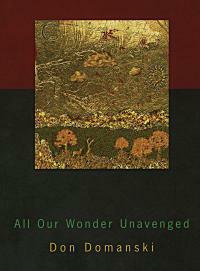
All Our Wonder Unavenged
Don Domanski
brick books
2007 Governor General's Award for Poetry
2008 Atlantic Poetry Prize
_______________________

Antonio Clavé
_______________________
Contact [PDF]
Alphonso Lingis
Janus Head
When someone there is standing before us, we have been cautioned that he is not speaking with his own voice but speaking the language of his gender, his family, his class, his education, his culture, his economic and political interests, his unconscious drives, indeed his state of physical health and alertness. Are we then doing no more than interpreting what he says and does? Do we ever make contact with what he means for himself when he says “I”—with his visions, the story he tells himself of his life?
What an extraordinary power, this power of the voice to put us in contact, not with our own mental images but with persons and things themselves!
We catch on to the purring of the kitten, the frantic cries of the bird, the snorting of the distrustful horse, the complaint of the caged puma. We pick up the tone of the blackbird marsh, the hamlet meditating in the Himalayan mountainscape, the shifting dunes under twilight skies. As our words form, the tone of these things and events resounds in our voice. The pacing and accents of our phrases express the calm or the frenetic movement, the rhythm and periodicity or jerks and explosions of the things and events. Our words articulate the agitated tone of a column of ants, the syncopation of the dockworkers unloading a ship, the purple majesty of the Pacific ocean under dawning Madagascar skies. Our words reverberate the tone of a cave, a cathedral, a dance, the pacing, the rhythms, the expanse, they return the muffled or dead silence.
Janus Head - Philosophical Practice
Vol. 8, No. 2 Winter 2005
Essays by Margret Grebowicz, Alphonso Lingis, Seth Huebner, Bert Olivier, John M. Desmond, Robert D. Walsh, Peter B. Raabe, Robert Scott Stewart, Jana Milloy, Stuart Grant, Tom Strong & Andy Lock, Louis Sandowsky, Mike Kantey, & Jonathan Diamond
Interview with Alejandro Jodorowsky
Photography by Syrie Kovitz
Art by Uwe Schmidt-Hess and Doc Ross
Poetry by Tomas Tranströmer, Laurelyn Whitt, Robert Gibbons, Claire Barbetti, Richard Hoffman, Jonathan Monroe, & Sarah Biggs
_______________________
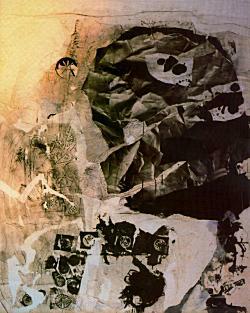 Antonio Clavé
_______________________
from Earthly Pages: The Poetry of Don Domanski
Fata Morgana
you’re walking alone in the forest
the moon is directly overhead
eating her supper of astronomy
and wedding-gifts
there’s a thousand miles of trees
in every direction
which means there’s just
enough blood to go around
so you mustn’t spill a drop
(....)
you’re like me
and want a straight line
through everything
but there aren’t any here
no path from A to B
no A or B
(....)
your life behind a desk
was an illusion
the shining city a madness
brought on by fatigue
there aren’t any cars or telephones
there never were
not a single clothesline or shoelace
in all the world
(....)
the moon is devouring you
just you tonight
with your long ears pricked up
in their sad salute to fear
this hour is called Abandonment
this night Bottomless
I would call you Insignificant
if you weren’t already named Essential
if you weren’t the very centre of the world.
...(more)
Laurier Press Blog
_______________________
 acrobats
Antonio Clavé
_______________________
The mob within the heart
Police cannot suppress
The riot given at the first
Is authorized as peace
Uncertified of scene
Or signified of sound
But growing like a hurricane
In a congenial ground.
-
- Emily Dickinson
The Poems of Emily Dickinson

The Lover's old house
now occupied by antidrug police
Basil Childers for The New York Times
photo - mw
The Saigon of Marguerite Duras
Matt Gross
.....................................................
from
Practicalities
Marguerite Duras
courtesy of Spurious
I've spent whole summers at Neauphle alone except for drink. People used to come at weekends. But during the week I was alone in that huge house, and that was how alcohol took on its full significance. It lends resonance to loneliness, and ends up making you prefer it to everything else.
[...]
Alcohol, even those in the gutter, tend to be intellectuals. The proletariat, a class far more intellectual now than the bourgeoisie, has a propensity for for alcohol, as can be seen all over the world. [...] Just look at the history of ideas. Alcohol makes people talk. It's spirituality carried to the point where logic becomes lunacy; it's reason going mad trying to understand why this kind of society, this Reign of Injustice, exists. And it always ends in despair.
[...]
What they lack is a god. The void you discover one day in your teens - nothing can ever undo that discovery. But alcohol was invented to help us bear the void in the universe - the motion of planets, their imperturbable wheeling through space, their silent indifference to the place of our pain.
A man who drinks is interplanetary. He moves through interstellar space. It's from there he looks down. Alcohol doesn't console, it doesn't fill up anyone's psychological gaps, all it replaces is the lack of God. It doesn't comfort man. On the contrary, it encourages him in his folly, it transports him to the supreme regions where he is master of his own destiny.
No other human being, no woman, no poem or music, book or painting, can replace alcohol in its power to give man the illusion of real creation. Alcohol's job is to replace creation.
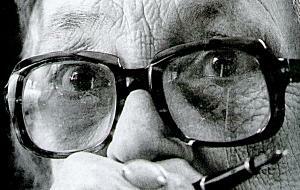
Marguerite Duras
(4 April 1914 – 3 March 1996)
Hiroshima mon amour
Marguerite Duras
google books
Marguerite Duras: apocalyptic desires
Leslie Hill
google books
In Love with Duras
Edmund White .....................................................
Loving Duras
Robert Gibbons
Listening at the chora, which Duras compared to a gong, (the sound of a slit-drum?) is her secret, & it can't be done without suffering. Duras, the writer. Duras teaching writing. She's tough. I always loved her image of wrestling "The Black Block," in her book of essays. (Practicalities, translated by Barbara Bray, Grove, 1990.)
When you're writing a kind of instinct comes into play. What you're going to write is already there in the darkness. The image of a black block in the middle of the world isn't far out. You have in front of you a mass suspended between life and death and entirely dependent upon you. I seize the mass that's already there, move it about, smash it up - it's almost a question of muscles, of physical dexterity.
In another little book, originally from Gallimard in 1993, & translated by Mark Polizzotti for Lumen editions in Cambridge, MA, titled, Writing, Duras shares more secrets. For her, two essential elements in writing are solitude & doubt. She also warns against what she finds in others' books as "clean," but which, "derive from a classicism that takes no chances. Inevitable would probably be the word."
She continues, "Writing comes like the wind. It's naked, it's made of ink, it's the thing written, and it passes like nothing else passes in life, nothing more, except life itself." That intimation of death is echoed in a quote from a diary in one of two new biographies, this one from The University of Chicago by Laure Adler,
I'm sitting at my table, searching for a sentence, yes, a little drunk, I'm searching for a sentence that won't come. Yesterday the sentence was spiraling fragmented inside me. Today it won't recreate itself. It was long, quickened by the pitch of a song, a refrain; it was like a lament, regular, intoned. Words I remember were caught up in it: slime, death, fan, frightened birds, thief, I'm searching for the sentence. It is such exquisite pain not to find it tonight. It will return tomorrow like a bitch to her master after the shame of the night hunt.
...(more)
_______________________
On Bricolage
Assembling Culture with Whatever Comes to Hand
Anne-Marie Boisvert
translated by Timothy Barnard
horizonzero
As Umberto Eco remarks, "[A]rt forms are epistemological metaphors, like a creative (structuring) resolution of a diffuse theoretical consciousness, linked moreover less to a specific theory than to a general conviction." Thus art, as Claude Lévi-Strauss points out, "lies half-way between scientific knowledge and mythical or magical thought". For Lévi-Strauss, the human mind operated according to two modes of knowledge: that of the savage mind and the scientific mind. These are represented by the bricoleur and the engineer, respectively. The scientific mind is thus a functional mind, attempting to explain reality in quantitative terms. Its goal is efficiency. The savage mind, on the other hand, is a "science of the concrete" which attempts to "fit together", to grasp the world as a network of relations and correspondences:
The "bricoleur" is adept at performing a large number of diverse tasks; but, unlike the engineer, he does not subordinate each of them to the availability of raw materials and tools conceived and procured for the purpose of the project. His universe of instruments is closed and the rules of his game are always to make do with 'whatever is at hand', that is to say with a set of tools and materials which is always finite and is also heterogeneous because what it contains bears no relation to the current project, or indeed to any particular project, but is the contingent result of all the occasions there have been to renew or enrich the stock or to maintain it with the remains of previous constructions or destructions.
The engineer thus attempts to explain the world at the same time as dominating it, while the bricoleur seeks to inhabit it, to invest it in order to give it meaning. The former is thus engaged in "creating events (changing the world) by means of structures" in Levi-Strauss' words (indicating the engineer's "hypotheses and theories"), while the latter is engaged in "creating structures by means of events". In this sense, the bricoleur seeks above all (more or less consciously) to preserve the qualitative complexity of the world by transposing this complexity onto structures of components with diverse and subtle relationships. This complexity is sacrificed by the scientific mind in favour of intelligibility. The bricoleur thus displays concern for recuperation, and thereby responds to a profound need: that of creating meaning through reassembly, by (re)organising and weaving meaningful relationships among apparently heterogeneous objects....(more)
.....................................................

photo - mw
.....................................................
loops of perception
sampling, memory, and the semantic web
Paul Miller, aka DJ Spooky
horizonzero
_______________________
Demonstration
Camelia Elias
FRAG/MENTS
Demonstrative silence is interesting because it refutes most questions. Particularly the most obvious ones. Faced with a silent subject, the question ‘what are you trying to demonstrate’ becomes not only redundant, but is in fact downright stupid. Thus I get interested in the situation when questions such as these cannot be posed. For, what then? One is still forced to understand something, but what, if this something is not articulated in words? Bypassing the materiality of words involves a process through which knowledge can be said to be brought about not by verbal eloquence but by a sensual kind. One understands by sensing. So far so good, where the interlocutor is concerned. If you get it, you get it, and if you don’t, you don’t. (At this point I totally get into the reggae rhythm, swing my chair by balancing it on its two legs, and sense that I’m on to something). Namely that where the active agent is concerned – the one who keeps silent – saying nothing requires assuming precisely this risk: that no one gets it. Which means that ultimately a silent act must be directed first and foremost to no one before it is addressed to someone. This takes not only a lot of guts and balls but also a lot of trust. Infinite trust. (At this point, as the Bacardi works its way through my body, I get a shivering thought.) If I should ever be the recipient of such trust, how can I ever betray it? I pose this question to myself, as I’m ready to move north, to inhabit a mountain, perhaps even in the Arctic. But I don’t answer it. Not yet. Meanwhile, I praise God for smart husbands and dead mathematicians. Other things can wait. Others can wait....(more)
_______________________

photo - mw

House for Pigeons
Józef Czapski
b. April 3, 1896
1 2
_______________________
the opening of
Vancouver: A Poem
George Stanley
available in print or pdf from New Star Books
Reading Paterson on the bus, back & forth. Across the city. The 210. A man & a city.
I am not a man & this is not my city.
Williams though as a guide. His universals as particulars, ideas in things. His rhythms. Ever rhythmic, shaking (like a bellydancer), splashing (like the Falls) lines. Insistences. Insistence on persisting. Oh, maybe that, yes. But to take the thing to its . . . or maybe come back & find it later. Seasonal. Recurrences. And something else ‘out of the blue’ with a certainty (but I have no certainty) that the fact of it (‘of it,’ that’s Williams) — might —
Vertigo. Vair to go?
(Student comes up to my desk with woeful expression. ‘I forgot to double space. Should I start over?’ ‘No. Double space now.’)
Reading him back & forth on the bus, the 210, & also reading him forth, & then back, back to the beginning of some ‘poem’ — in the larger poem, some break, impetus — of thought — & perception — pent up, while it seems he is reading the prose passages he has written, reading ahead, reading a newspaper, or in the library, page of an almanac, memoir, time before his childhood, turns the page — via mosses from an old manse
_______________________
Toward An Analogy In Cyber History: [pdf]
Judeo-Christian Traditions Of Transgression In Material Property
Benjamin Peters
This essay, in turn, makes three contributions to the future of the larger interdisciplinary field the Information Society Project occupies (a field we might call information society scholarship): one, it calls for and coins cyber history as an emerging interdisciplinary topic devoted to informing contemporary questions with insight from the past; two, it notes a method for using analogies to frame historical arguments; and three, it suggests one side of such an analogy—namely, that the present-day challenges strict intellectual property regimes are facing in the mounting trends toward digital cultural economies to function outside of those bounds can be understood, by analogy, with the longer tradition of unrest possessing Judeo-Christian thought on material property.
I hasten to add: this is not an argument that intellectual property and material property themselves are commensurate. In the most significant ways, they are near opposites. However, in terms of shedding light on the motivations and thought driving extra-legal behavior in modern digital economies, a longer tradition of transgression surrounding material property may not be a poor place to begin. This essay is only a beginning; much work is left undone. No effort is made to complete the analogy or to conclude decisively as to the structural similarity or dissimilarity between material and intellectual property. Rather, it is assumed that most readers will already be familiar with the literature outlining reasons to suspect, if not outright rebel against, strict intellectual property rights: to this end, part three focuses on often overlooked evidence of the restless and varying sense of materiality early thinkers like Moses (the presumed author of Genesis), Locke, and Marx assigned to property. The reader is invited to fill in the other side of the analogy: what happens then when immaterial property is built on a shifting foundation of material property? The answers will have to wait the conversation this essay is meant to provoke.
via Tom Matrullo's IMproPRieTies
_______________________
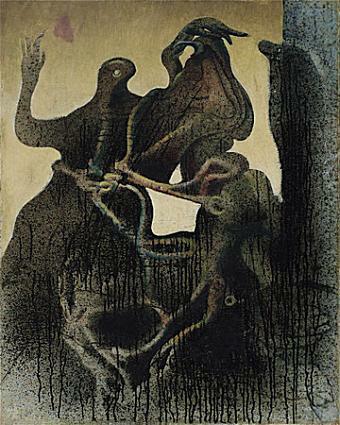
Zoomorphic Couple
Max Ernst
1933
Une semaine de bonté:
a surrealistic novel in collage
Max Ernst
google books
.....................................................
The Hundred-Headless Woman
A Week of Kindness
Misfortunes of the Immortals
Large scans from Max Ernst's collage novels courtesy of the erstwhile mraitch
_______________________
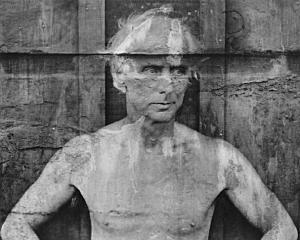
Max Ernst
2 April 1891 – 1 April 1976 portrait by Frederick Sommer
1946
_______________________
Stone's Secret
Margaret Avison
Otter-smooth boulder
lies under rolling
black river-water
stilled among frozen
hills and the still unbreathed
blizzards aloft;
silently, icily, is probed
stone's secret.
Out there --past trace
of eyes, past these
and those memorial skies
dotting back signals from
men's made mathematics (we
delineators of curves and time who are
subject to these) --
out there, inaccessible
to grammar's language the
stones curve vastnesses,
cold or candescent
in the perceived
processional of space.
The stones out there in the
violet-black are part of a
slow-motion fountain? or of a
fireworks pin-wheel?
i.e. breathed in and out as in
cosmic lungs? or
one-way as an eye looking?
What mathematicians must,
also the pert,
they will
as the dark river runs.
Word has arrived that
peace will brim up, will come
"like a river and the
glory...like a flowing stream."
So.
Some of all people will
wondering wait
until this very stone
utters.
From: Sunblue. Hantsport: Lancelot Press, 1978. pp.21-2
.....................................................
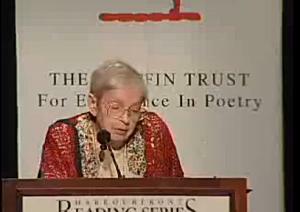
Margaret Avison
1918 - 2007 Avison reading "Rising Dust"
youtube
Margaret Avison: Power, Knowledge and the Language of Poetry
J.M. Kertzer
Refusing the Sweet Surrender: Margaret Avison's "Dispersed Titles"
J.M. Zezulka
Margaret Avison reading
Vancouver 1963
"Vancouver 1963 Poetry Conference & Miscellaneous Readings/Lectures"
Fred Wah Poetry Recordings
Slought Foundation
"Out of the Painted Grove, My Buck":
The Escape from Irony in Avison and Page
Gordon Johnston
Journal of Canadian Studies , Winter 2004 .....................................................
The Fixed in a Flux
Margaret Avison
From the back seat, barley fields and sky
jolt into: shacks, outbreaks of
garish little gas
stations wherein shine
those cabinets of pop. It’s like
a breathing-out relief,
being borne on, to
gaze again out over
unfenced pastureland
in a light that is a
misty blue-spruce colour.
Such a traveller
sees, certainly, and yet
with a kind of non-
seeing. Still the particulars
stand out, accurate
to a roof-slant with
partly fallen chimney
or that tall ditch-top spike
of thistle, odd, in silhouette against
nothing. This non-seeing calls for only
a moving car — or train window.
Freed from responsibility to
everyday eyework, non-seeing
peaceably receives, without withholding
acceptance.
Persons with a point of view say ‘I
see,’ to one another, but when
drawn through a keyhole of a solitary time,
are simply open
to what, in time, must pass;
all that is seen being there
a now that nonetheless is not
quite here.
Margaret Avison - Eight poems
Jacket 29 - April 2006
_______________________
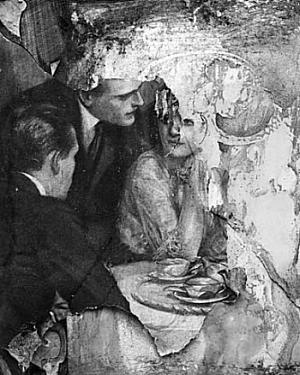
Venus, Jupiter and Mars
1949
Frederick Sommer
1905-1999 1 2 3
_______________________
Two Poems
Eric Linsker
conjunctions
Common Day
Our failure in the waves
What is left of wind scuffling through wind
All meaning no content
A crust blossomed off by looking
Like human faces lapsing
Into the smooth body of the world
...(more)
_______________________
And lead us not into thinking the new is new: [pdf]
a bibliographic case for new media history
Benjamin Peters
Abstract
Must the concept of the study of new media seem so thoroughly ordinary? What does it mean to study new media other than to study media that exist now? Prompted by the 10th anniversary of New Media & Society, this article aims to help rethink and elongate the history of new media studies by merging new media studies and media history literatures.The recursive definition and use of the term ‘new media’ are reviewed. New media need to be understood not as emerging digital communication technologies, so much as media with uncertain terms and uses. Moreover, by recognizing that new media studies quickly become history and that most media history is already new media history, this article calls for a use of both literatures to focus on the renewable nature of media in history. It reflects on a complementary attitude toward history meant to help usher in a sounder future of the study of the past.
Working Notes
Ben Peters' Work Blog _______________________
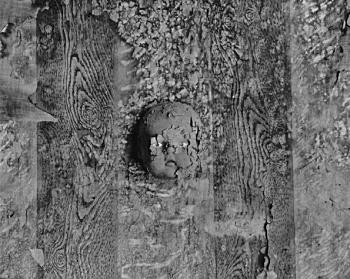
Frederick Sommer
_______________________
The Swimmer's Moment
Margaret Avison
For everyone
The swimmer's moment at the whirlpool comes,
But many at that moment will not say
"This is the whirlpool, then."
By their refusal they are saved
From the black pit, and also from contesting
The deadly rapids, and emerging in
The mysterious, and more ample, further waters.
And so their bland-blank faces turn and turn
Pale and forever on the rim of suction
They will not recognize.
Of those who dare the knowledge
Many are whirled into the ominous centre
That, gaping vertical, seals up
For them an eternal boon of privacy,
So that we turn away from their defeat
With a despair, not for their deaths, but for
Ourselves, who cannot penetrate their secret
Nor even guess at the anonymous breadth
Where one or two have won:
(The silver reaches of the estuary).
_______________________
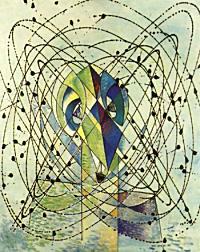
Young man, intrigued
Max Ernst
_______________________
from
Wichita Vortex Sutra
Allen Ginsberg
quoted by Rolf Potts in The Last Antiwar Poem
The war is language,
language abused
for Advertisement,
language used
like magic for power on the planet:
Black Magic language,
formulas for reality —
Communism is a 9 letter word
used by inferior magicians with
the wrong alchemical formula for transforming earth into gold
-- funky warlocks operating on guesswork,
handmedown mandrake terminology
that never worked…
…Sorcerer’s Apprentices who lost control
of the simplest broomstick in the world:
Language
_______________________

Wood And Transience
Vinayak Bharne & Iku Shimomura
_______________________
Others narrate with lyres or harps;
I tell with my thought.
For he finds nothing, who through music
Finds only what he feels.
Words weigh more which, carefully measured,
Say that the world exists.
- Ricardo Reis (the sad epicurean) aka Fernando Pessoa
Selected Poems, translated by Richard Zenith
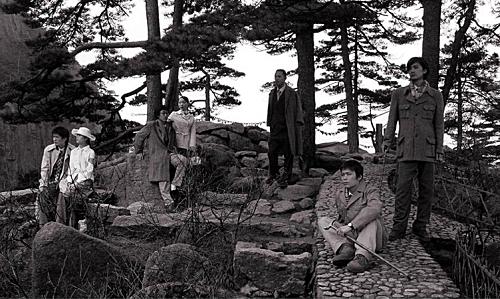
Seven Intellectuals in a Bamboo Forest
Yang Fudong
Asia Society
via Andrew Abb
_______________________
Second Nature:
International journal of creative media
Vol 1, No 1 (2009): Role Models
.....................................................
Writing in the Contemporary Academy
Catherine Cole
The air was pregnant with questions. Surprise certainly, the creative tensions thrown up by the landscape, the real vying with the imagined. Critical thinking challenged practical executancy. I thought about what I might do with the scene, how I might re-imagine it. Would words suffice or would I use images, music, animation, sound? Would I write it, perform it, draw it – or what combination of all of them might satisfy the deeply felt moment and the intellectual and creative questions it posed? Would the resulting work constitute academic research or creative practice and how might I differentiate between them?
Writing in the academy offers these questions of creative practice. Like my photos of the Suffolk countryside, the role of the writer/academic is an amalgam of theory and critical analysis, research, teaching and industry connections, all of them running together, pulling apart, like a landscape viewed from a distance. As a writer I’m engaged with illusory spaces – those tensions between the fictional and the real, the imagined, and research based on the true versus the felt. I make choices about genre, form, voice, style, affect, my writing seguing through them by necessity as well as imaginative design. These approaches have taken form in the hermeneutics of my crime fiction and my monograph on the theories which underpin the genre, in my Vietnam research into the ways in which colonialism challenges memory, identity and place, in memoir-essays such as my book on AD Hope in which the auto-biographised ‘I’ challenges reader assumptions about biography. I’ve co-edited a book on fashion in fiction and curated a gallery exhibition about the hand-made book. In all of these projects I’ve engaged in a fluid, continuous discourse about what the creative/critical fusions propose to me, and how the diversity of my research and writing background reflects wider institutional questions about the best ways to develop writing pedagogies and interdisciplinary relationships.
The great strength of the discipline of writing, I would argue, rests in questions about the complex relationships between writing, reading, thinking and research and the ways in which these inform the academy’s pedagogical approaches....(more)
_______________________
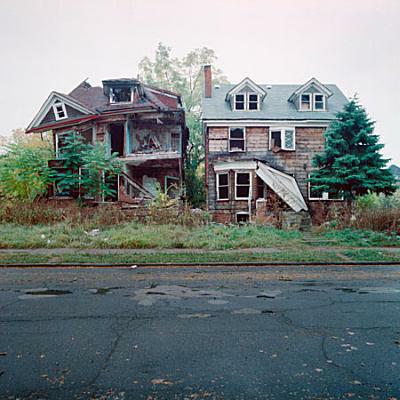
100 Abandoned Houses
Kevin Bauman Photography
_______________________
Where nature went
Landscape painting shaped the direction of art for a century, then all but vanished. What happened?
Dushko Petrovich
In our own time, landscape painting retains an unquestionable popular appeal. As civilization pulls us further and further from nature, it's no surprise that we cherish glimpses of arcadia. Landscapes have become nearly ubiquitous: in living rooms and waiting rooms; on fine china and restaurant walls; at adult ed and on PBS; in regular blockbuster exhibitions and on the resulting sweatshirts, mugs, and even refrigerator magnets.
There is one place, however, where landscapes have almost disappeared: serious contemporary painting. Whether it's pop masters like Robert Rauschenberg and Jasper Johns, storytellers like Jacob Lawrence and Philip Guston, or more recent standouts like Elizabeth Peyton and John Currin, America's leading painters have done their most important work in other genres. It's hard to think of a major gallery that regularly exhibits new landscape painting.
Of course, there are many sensitive artists - Rackstraw Downes, the late Neil Welliver, and Boston's own John Walker among them - who paint recognizable outdoor scenes. But as the genre itself has lost its prominence, their work has also been marginalized. What happened to landscape painting? Its decline in status is even more surprising given the current moral, scientific, and political preoccupation with the environment. One might think that scenes of nature - central to our culture for centuries - would still have a role to play now, having done so much to cultivate our appreciation of the environment in the first place.
In a sense, however, landscape never went away: It was just transformed into something unrecognizable, and has begun to emerge again in surprising places. The rise and fall of landscape painting tells an interesting story about art's relationship to the outside world over the last two centuries, and the ways the genre might be resurfacing today suggest just how unsettled our own relationship to nature has become....(more)
_______________________
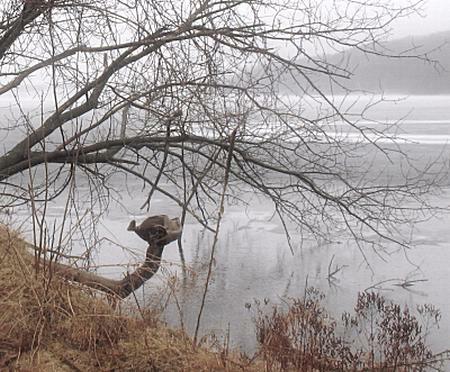
photo - mw
_______________________
Still, Life Supports a Tending
Jordan Stempleman
jacket
The poem, as I see it, must never overvalue any single aspect of its construction. The sound, the image, the dreadful ideas, the needy and persistent memories that ask to be eternally recognized, thus substantiated, all must support the totalized, and equivocally measured percentage that establishes the whole creation. Again, I listen to Coleridge’s definition of the poem when he says,
A poem is that species of composition, which is opposed to works of science, by proposing for its immediate object pleasure, not truth, and from all other species (having this object in common with it) it is discriminated by proposing to itself such delight from the whole, as is compatible with a distant gratification from each component part.
The poem, in its entirety, comes from the slow growth of a delightful forgetfulness and a reaching out towards a hopeful, developing future.
Because when darkness does come we’ll need advice, and the only way we’ll get it is by looking at what we’ve wrote down a long time ago, thinking it of no importance and laying it in a shallow box or drawer (Ashbery, Flowchart 95). Our ideas and concerns come back to us. They, as we do, become frustrated when surmised in one sitting, since they rely on all we have yet to consider: You know there are always messages we find
— in bed, on the street or anywhere, and the mind
invents a translation almost plausible;
but it hasn’t any knowledge of the language at all
-
(Bronk 135).
The delay of seconds passing, a chute for the familiar ease in which we tend to call on sense. But sense, in poetry, is in the layers below the ongoing conflicts that are at work to seek some resolve to our dailyness.
It is the restored imagination of plainness, of the always returning concerns that seep upward into speech to build themselves in the frightening place where, “one thing doesn’t lead to another” (Bronk 84) but instead, returns to the indefinitely unfinished, we may began, as we have, so many times as before. ...(more)
Interview with Jordan Stempleman
Tom Becket e-x-c-h-a-n-g-e-v-a-l-u-e-s
Jordan Stempleman blogs at Growing Nation
_______________________
Happiness Research Proves Milton Friedman Wrong
Phil Cubeta
Gift Hub
I have been reluctantly dipping into the new "happiness" research in psychology. What distresses me is not the wine (essentially right out of Aristotle and the wisdom literature from time immemorial), nor the bottle (experimental psychology), but the implicit enythmeme that goes like this:
1. Science has shown...
2. Happiness is...
I would prefer this disquisition:
Until we became market obsessed, it was common knowledge, in all moral, literary, philosophical and folk traditions that happiness or a successful human life is essentially gregarious, a matter of excellence and virtue in solidarity with others as part of a just community. Aristotle was eloquent on such topics, as was the Buddha, Jesus, Lao Tzu, Confucius, Wordsworth, and George Eliot. Economics, as it became denatured into the mathmatics of selfishness, took us astray. Now, here and there a few mildly well educated psychologists have found objective evidence that Crusoe was a miserable man, a failure as a human being, and the image of the isolated entrepreneur (who self-creates himself on an island by pilfering the necessities from the wrecked ship of state on which his colleagues died).
Instead of such a social critique, I am afraid that happiness research tends towards corporate consulting contracts, self-help books, therapeutic interventions, and uplifting blather. How about if we said that happiness research proves Ayn Rand wrong? ...(more)
_______________________
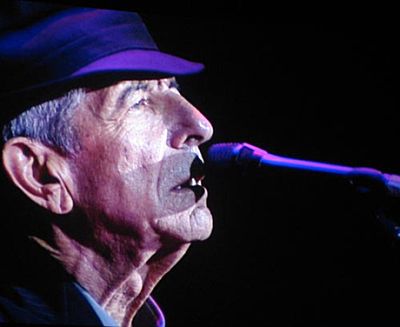
Leonard Cohen Live in London
CBC
tonight
8:00 pm (est)
_______________________
Notes To 'The Book Of Supplemental Diagrams' For Marco Knauff's Universe, Vol. 1: "Principal Features."
Norman Lock
webdelsol
1.
The Machinery is all, is habitation, is dreaming and exile.
The Blue Wire is essential to its construction.
And the Diode ringed with the colors of technology.
The Capsule contains an element yet to be identified.
(We suspect magic. We suspect a small beneficence.)
Now open the window. The air will further the enterprise, which, we insist, is a noble one. The light, which clings to the surfaces of leaves and grass, is also good.
Do not fear rust or the illness of time. The design has taken them into account.
In a corner of the room, install a bed in which you may, according to the time of day and your desire, lie down to sleep or take pleasure.
Night is best suited to desire.
(....)
9.
Desire is drawn up the Soft Tube {4} into the Particle Bath (34).
Desire will make its way resolutely into the Ellipsis (2)—that is to say, night. Into sleep.
Into dreaming.
Desire drives the Machinery. It is also manufactured by the Machinery. Desire is circular and cunning.
What happens inside the Ellipsis has never been monitored, although technicians struggled for years to secrete listening devices inside it {…}.
Such invasion has never been allowed by the Machinery, nor will it.
...(more)
History of the imagination: a novel Norman Lock google books
|
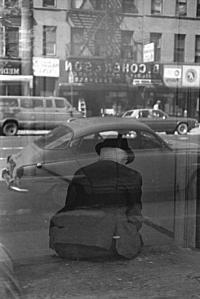
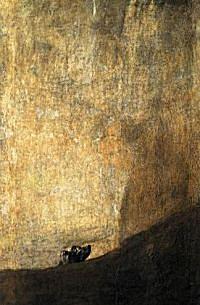
 Janus Head
Janus Head
 The Age of Briggs & Stratton
The Age of Briggs & Stratton


























































 I can’t write without knowing that each thing I define will be erased in time. There are no safe and secure places for language. The death of meaning is like the extinction of a species. But other meanings come forth to fill each ecological niche. The poet routinely wipes out entire taxonomic groups in order to make room for new forms of life. This culling is necessary; the poet who doesn’t do this is in peril. You must join with the fragility of sentience, recognize the elementary or undifferentiated consciousness where language originates. Writing poetry is like playing the piano with your hair. You don’t know exactly why it works, but somehow you’re able to make music. What I’m describing is intuition, the golden hunch behind all the explanations and theories, which allows you to take advantage of the fluidity of meaning. To intuit is to step outside language and view it from the air. What’s seen when you’re flying over language are the ruins of custom and interpretation, mighty edifeces meant to last milennia. But in fact, they’re made of straw, built on flowing water. No one who is seriously writing poetry can live in them for long.
I can’t write without knowing that each thing I define will be erased in time. There are no safe and secure places for language. The death of meaning is like the extinction of a species. But other meanings come forth to fill each ecological niche. The poet routinely wipes out entire taxonomic groups in order to make room for new forms of life. This culling is necessary; the poet who doesn’t do this is in peril. You must join with the fragility of sentience, recognize the elementary or undifferentiated consciousness where language originates. Writing poetry is like playing the piano with your hair. You don’t know exactly why it works, but somehow you’re able to make music. What I’m describing is intuition, the golden hunch behind all the explanations and theories, which allows you to take advantage of the fluidity of meaning. To intuit is to step outside language and view it from the air. What’s seen when you’re flying over language are the ruins of custom and interpretation, mighty edifeces meant to last milennia. But in fact, they’re made of straw, built on flowing water. No one who is seriously writing poetry can live in them for long.



